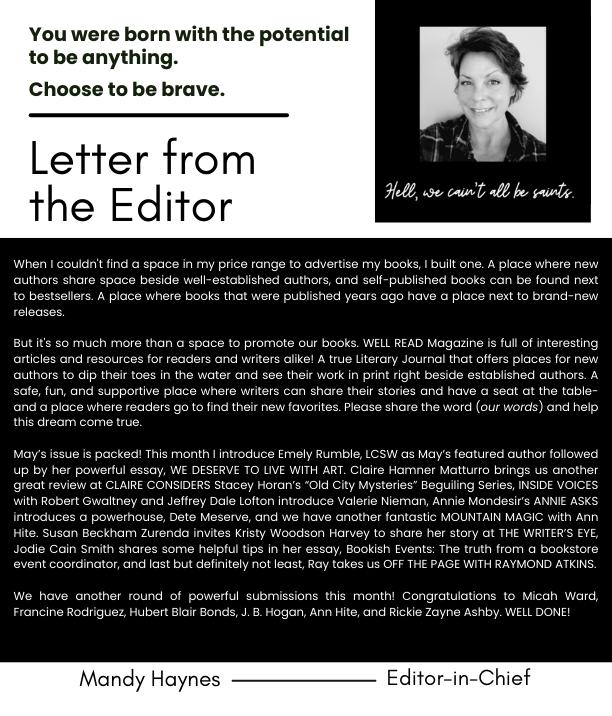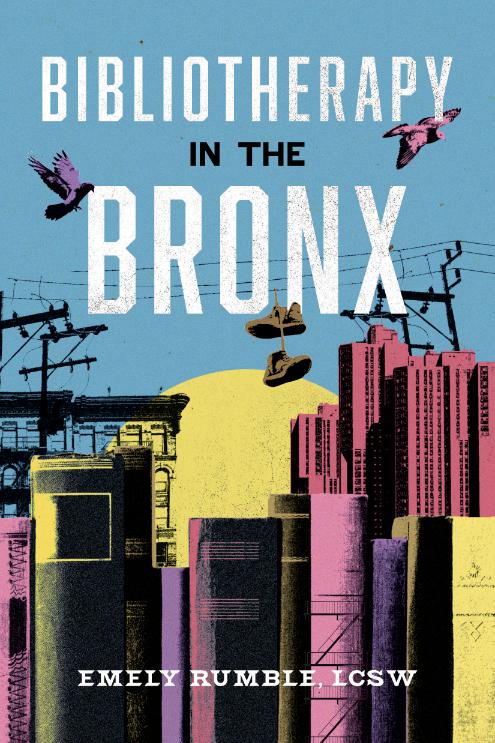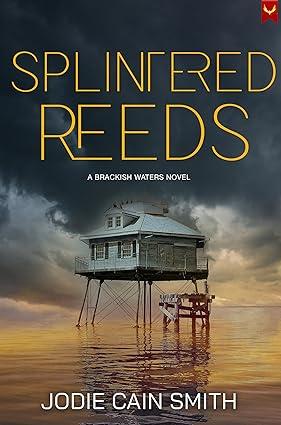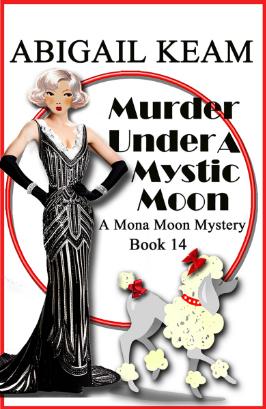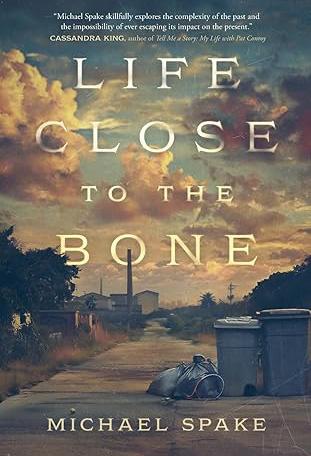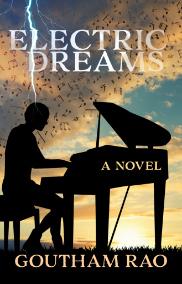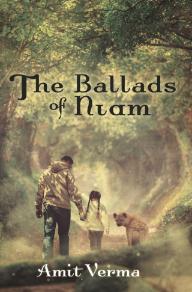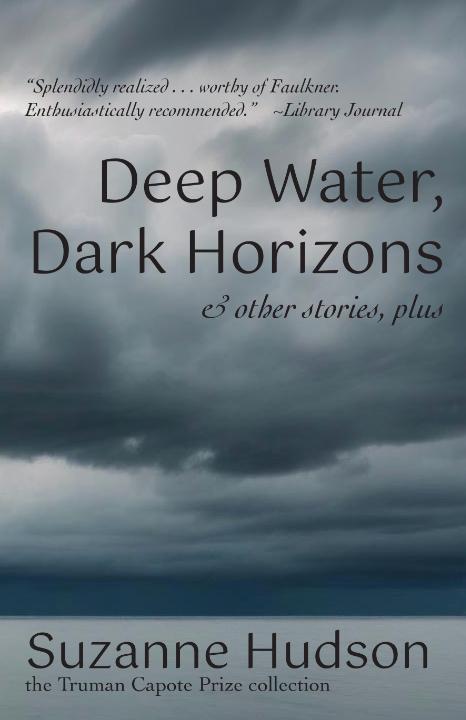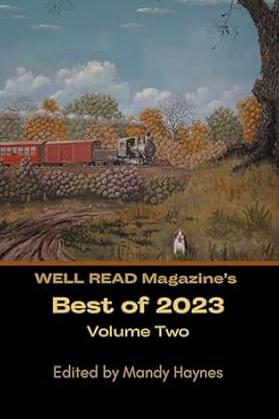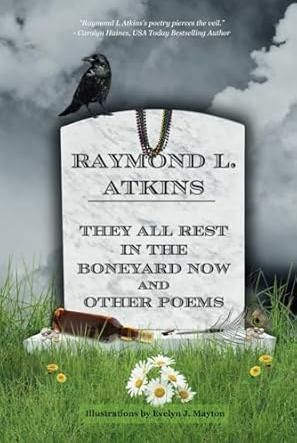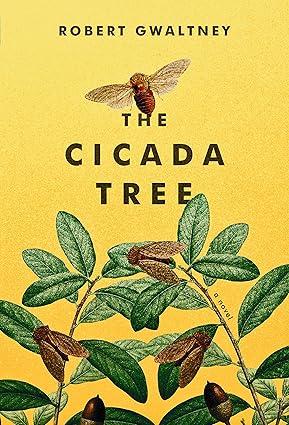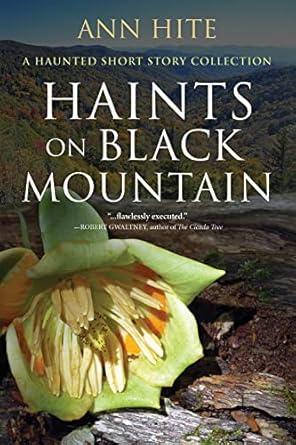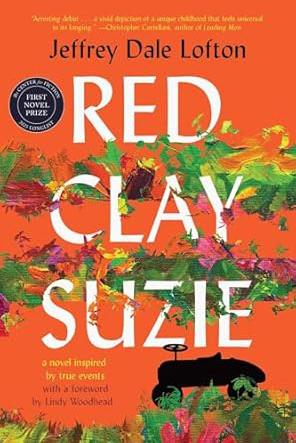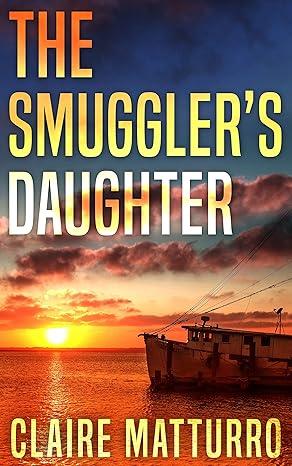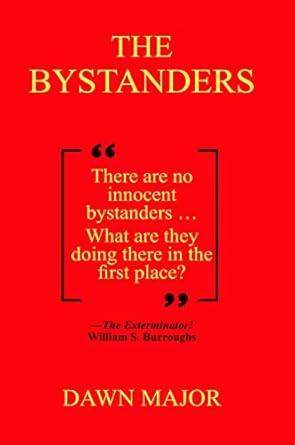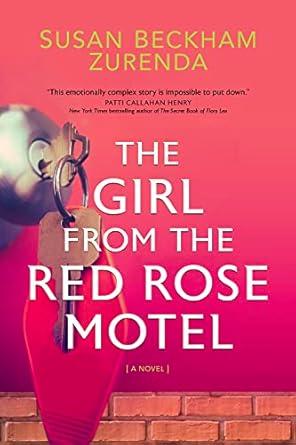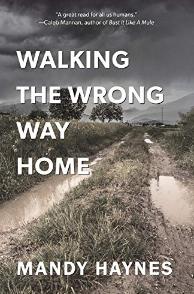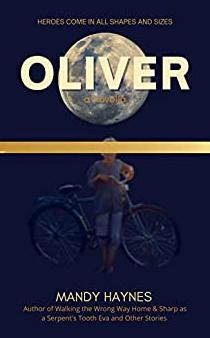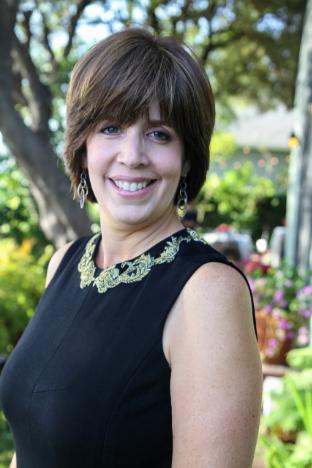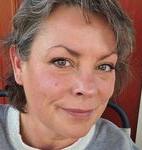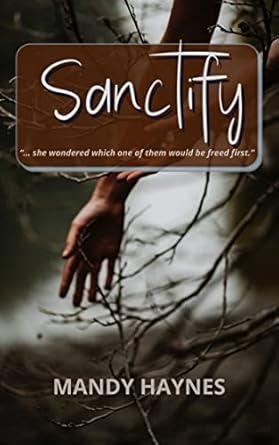INSIDE VOICES
“ We’re charged as writers with creating characters who are compelling, believable, often sympathetic…”
Robert Gwaltney and Jeffrey Dale Lofton introduce Valerie Nieman
Valerie Nieman is the author of novels and short story and poetry collections. Her novel In the Lonely Backwater won the Sir Walter Raleigh Award and was a Foreword Indies Book of the Year finalist. Her critically acclaimed work includes To the Bones and Blood Clay. She has held a National Endowment for the Arts creative writing fellowship. She is a professor emerita at North CarolinaAgricultural and Technical State University. She is also a former journalist.
Jeffrey/Inside Voices: Why did you feel compelled to write the story of Macbeth?
The murderous tyrant that we know as Macbeth first became part of my life when I found a blue-bound copy of Tales from Shakespeare in the tall bookcase at home. Charles and Mary Lamb rewrote the plays into prose, making them accessible even for a (too young) reader. I also remember my father quoting Shakespeare, especially, “I have lived long enough; my way of life/ Is fall’n into the sear, the yellow leaf…” fromAct V.
My father took me to see a touring production of Macbeth when I was tween-age, my first time attending professional theater. I remember the dramatic lighting and sound effects, the rags of the witches as they circled the cauldron, the clashing of swords—but mostly the poetry. This was my first encounter with the Bard on stage, and it would shape my entire life as a writer and poet and teacher.
The proximate cause of my Macbeth obsession came when, while doing research for an earlier novel, I learned that that Macbeth was a genuine historical figure, a successful king who ruled from 1040 to 1057 and not a murdering usurper. Of his wife, we know little more than her name, Gruach.
The true story of the Macbeths has haunted me for many years. I read and studied, continued to work on the novel, did more research, set it aside while I wrote and published five other novels as well as books of poetry. Something had set its hook in me and would not let me go until I told the tale.
Robert/Inside Voices: Why did you begin the story with the childhoods of the main characters?
There’s a whole lot of baggage attached to the name Macbeth. It’s the name you cannot say in theaters – it’s that Scottish play. And whatever else you might remember about the play, perhaps the marching trees, you’ve certainly heard the line “out, out, damn’d spot” used in advertising and cartoons and skits and on and on.
Because of this deep cultural antipathy, nurtured over hundreds of years, I couldn’t just leap into Macbeth and his wife at the height of their adulthood, as crowned monarchs. That was too high a hurdle. We’re charged as writers with creating characters who are compelling, believable, often sympathetic. If I was to explore and expand them as individuals, even redeem them, then I had to start from their youth.
That decision was also necessary because the Alba of the 11th century is far different from the Scotland that readers immediately imagine, with kilts and bagpipes and Bonnie Prine Charlie. Just as though I were creating an alien planet, I had to do a lot of worldbuilding. How did people travel? Was there coinage? What were the expectations for boys and girls at differing levels of society? Food, clothing, weapons, medicines, beliefs about gods and understanding of nature—I had to consider all those things to write historical fiction rather than loosely constructed fantasy. We all world build, as fiction writers, but this was a challenging task. It’s a good thing I like doing research.
Jeffrey/Inside Voices: We think we know about Macbeth because of Shakespeare’s play, but who were the historical Macbeths?
Macbeth was a rightful king through the traditional Celtic system, ruled for 17 years, and was hailed in his own time as the “ruddy king of plenty” and “The Righteous.” How did he become a villain, and why? I learned that efforts to tar Macbeth’s legacy began even before his death, as Duncan’s son Malcolm Canmore—raised in England and English in thoughts and habits—claimed the throne through primogeniture and then sought to boost his dynasty’s legitimacy. Over time, chroniclers merged Macbeth’s history with various legends and fairy tales to shape a monstrous, murdering usurper. When Shakespeare went looking for a story, he found this one in Holinshed’s Chronicles, which had brought together these
earlier versions and shaped the story to promote the Stuart line. The witches were another nod toward his patron, King James I, who was fascinated by witches and even wrote a book, Daemonologie, about how to find and destroy them. Scotland in the early 11th century was a loosely organized nation calledAlba. It was first settled in the Neolithic, then saw waves of peoples including the first great kingdom, the people who battled the Romans to a standstill. The Romans called them Picts, but we know little of their history because they did not leave a written language. Elegant symbols carved on pillars may mark marriages, land boundaries, treaties, or graves. They seem to indicate, as history also reports, that the Picts were matrilineal. The Gaelicspeaking Scots arrived from across the Irish Channel and moved up the Great Glen, merging with the Picts through warfare and intermarriage and the influence of Christianity. The Norse and Danish invaders called the Lochlannach took and settled parts of Moray, as well as Ireland and the Hebrides, and raided all around the coastlines. Then came the English, moving up from Northumbria and controlling Lothian until Malcolm II defeated them, and finally the Normans who fled to Macbeth’s protection –but that’s in the second book.Alba was quite the melting-pot. Scotland began to take its current shape in the time of Macbeth. Although Orkney and the territories to the north and west were still controlled by the Danes and Norse, Malcolm II conquered Lothian, and then annexed Strathclyde, an ancient British kingdom centered on the Firth of Clyde. It would fall to Macbeth, a child of the “Land
Beyond the Mounth” and King in the North like his father before him, to finally weld that ancient and quasi-independent polity to Alba.
As to “Lady Macbeth,” we know little more than her name and her father’s name and perhaps her brother’s. We do know that she was first married to a man called Gillecomgan, who was killed in battle by Macbeth, and then married Macbeth. Her son Lulach was adopted by Macbeth.
Because we know so little about her, I had wide latitude to create her life. Her father Boidh was Malcolm II’s tanist, a position of power but also peril. I had him send his children to obscure fosterage in the north, in territory claimed by Orkney, to protect him from the monarch who would have him and others killed. It was there that Gruach would be raised and instructed in the rites of the ancient goddess. I had to do a great deal of speculation in building a plausible life for her, but I always drew on scholarship and hope I’ve not strayed too far afield.
Robert/Inside Voices: Historical fiction requires a great deal of research in order to get it right.Tell us about your research process. My research began a long time ago, with interlibrary loan books. (This was in the early 1990s.) I remember ordering a Survey of the Province of Moray: Historical, Geographical and Political, thinking I would get a reproduction, but the brown paper package
contained an original 1798 volume! I was enthralled by the specificity of soils and stones, trees and crops, rivers and harbors, in the northeastern part of Scotland that is “Macbeth land.” I continued to read widely and deeply in history, mythology, the Celtic Church, women’s spirituality, the Picts, and the politics of northern Europe in the age between the Viking incursions and the Norman Conquest. But for me, research is more than dusty books, so I bought a new backpack and hiking boots in 2014 and a plane ticket to Glasgow. The Great Glen Way would be my first ever through-hike, 77 miles over five days. At age 59. I needed to see the land, the plants and trees, the birds and animals. For previous work set in Appalachia and North Carolina, I was able to draw on my life history and environment, but Scotland was just a place seen in photographs, and I could not write about a place unvisited. Although little remains from my period, 1000-1050 AD—grass-covered ruins, Pictish symbol stones and standing stones from even earlier times—I gained a sense of the landscape. I spent a lot of time in the north, especially Orkney and the area known as Moray for centuries. This was where Macbeth’s family ruled, his power base. I walked along sea cliffs and visited ancient fortifications at Burghead. I came to know the land where one of the major scenes of Shakespeare’s play takes place, the hard heath near Forres. That’s where Macbeth encounters the dreadful witches.
In 2023, I returned to wander in many more locations important to the book, while also spending fruitful days in the National Library
and the National Museum of Scotland. I visited the Aberdeenshire coast and the valley of the River Dee, where sites linked to Macbeth’s story include the place of his last battle, an almosterased hill fort at Lumphanan, not Dunsinane of the play.
Jeffrey/Inside Voices: You traveled to Scotland as part of your preparation for writing the book. What stood out to you during your travels?
The history is compelling and the landscapes magnificent, but it’s the people who live in my thoughts.
The women who saved me: More than I’ll enumerate here. The woman who ordered me into her Land Rover when I’d missed the turn in pouring rain and was walking down the road. “It’s all twisty bits ahead, you’ll be run over!” The woman who gave me a lift to my B&B in Spean Bridge after I missed another signpost, walked a long way and had to backtrack. Janet atAbriachanWoods teahouse, midway on a long section of the GGW, who brewed me ginger and lemon in a battered silver pot. Her tea and encouragement kept me on my feet.
Themusician:Mr.Scottontheworkboat/ferryplowingthroughthe North Sea to the furthest of the Orkney Islands, North Ronaldsay. “Do you mind if I play?” he asked me and the only other passenger, then broke out a set of small pipes and gave us a lovely concert with annotations about the tunes. He also had wonderful stories about World War II, and how he rowed a boat to attend school.
The people who taught me: David the biker who told me much about Macbeth, the Picts, and the Brocken Spectre as we chatted in a parlor in Oban. The man from Trees for Life who explained the forests I was hiking through were alien trees, Sitka spruce and Douglas fir, plantations that had replaced the Caledonian woods of oak and pine that Macbeth would have known. The woman at the Post in Burghead who told me to dip a cup from St. Aethan’s well, which would cure all my ills. Perhaps if I’d been a believer.
The new friends: Sunday at the Black Isle and I thought I’d walk to Fortrose and see the ruined cathedral. I was hungry but nothing was open except for the tiny Union Tavern. Annie offered me crisps or tomato soup heated up in the back, but as I turned to go, the lean man at the end of the bar said, “Have a drink with us, lass.” I spent the rest of the afternoon with Ollie and Hugh and the boys. Four of them went home for instruments and we had a real ceilidh. Can’t wait to stop in again when I return this fall.
Robert/Inside Voices: Even with research, these people lived so long ago. How did you flesh out a story of historical characters so long after they walked the earth?
People are people. They love and hate, compete for prizes and prestige, worry about their children’s future. Instead of an iPad, they gave their children wooden swords and spindle whorls, but the impulses are the same.
That said, it’s difficult not to run afoul of cultural expectations when you’re writing in this day and time, much less a thousand years ago. Muchofmyresearchwasconcernedwithpracticalcultureofthetime. Forinstance,noblechildrenweresentawaytofosteragegenerallyat6 or 7. They remained with that foster family until around 17, when a boy was considered to be a man. How does that affect the parents’ bond, and the foster parents’, with the child – and vice versa?That’s a knottyproblemforMacbeth,whosedistantfatherisoftenatoddswith the Alban king who fosters him and teaches him the arts of war and governance.
Jeffrey/InsideVoices: Without giving too much away, can you tell us about the conflict between Macbeth and Duncan?
Duncan and Macbeth were nearly the same age, grandsons of King Malcolm II by different mothers. Thorfinn the Great of Orkney was yet another cousin, and all three would have major roles to play in the political world of Northern Europe.
I put Duncan and Macbeth together as fosterlings raised at theAlban court. Duncan was about four years older, so you had the sibling rivalry of an older and younger child. Knowing what history said about King Duncan, that he made poor judgments when it came to invasions and battles, I decided that he would likely have been impetuous as a child, rash, even a bully. Macbeth we know to be literateandratherpious,soIinventedthemonkwhoinstructedthetwo boys in theology and Latin and Greek--or tried to, in Duncan’s case.
My novelistic choices, informed by the historical record, would spark conflicts throughout their teenage and young adult years.The heart of their disagreement was the method used to determine the royal succession. The Celtic tradition was for the “men of the blood” to meet and elect the most able from among their number. They might choose the man named by the king as his tanist or heir apparent, or they might not. Macbeth had the better claim to the throne, in terms of bloodlines, but supported Duncan militarily when he was named tanist and then elected king. However, Duncan was not a success on the battlefield. Hoping to get a win and improve his popularity, he made the fatal mistake of invading Macbeth’s home territory.
I’ve called the next book The Last Highland King. After Macbeth, rulers were elevated under the principle of primogeniture, with Malcolm Canmore invading with English support to seize the crown he believed he was entitled to wear as Duncan’s eldest son. With his reign and those of succeeding Scottish rulers, political alliances and influences shifted toward England, and the Highlands past was supplanted by one centered on the Lowlands.
Robert/InsideVoices:This is the first of two books.What can you tell us about the next one?
I’m three-quarters of the way through the first draft of the second book. Much challenging territory ahead of me, however, as history records Macbeth’s pilgrimage to Rome, a foundling laid at his
door, and a lot of battles. I’ve imagined Macbeth and Gruach in their married lives, especially the stresses caused by differing religious beliefs. The Last Highland King will be published in Spring 2027.
“Steeped in the myth, mystery, politics, and culture of Celtic Scotland, Upon the Corner of the Moon presents the world of the young Lady Macbeth and Macbeth with authenticity, a deft hand, and a poet’s voice. Valerie Nieman’s book is a powerful take on two fascinating and enigmatic historical figures.”
—Susan Fraser King, author of Lady Macbeth: A Novel and Queen Hereafter: A Novel of Margaret of Scotland
Upon the Corner of the Moon
Valerie Nieman
Click above to go to the BETWEEN THE PAGESYouTube channel, or on one of the links below to listen to the podcast. Please take a second to like and subscribe if you enjoy the channel - we appreciate you!
Lightning Bug Season
When the days stretched longer and the evenings turned warm like melting butter, the yellow lights flashed on and then off and on and off in the darkening shadows of the clutter of trees in the old neighborhood. We, my younger brother and I, were given one rule: be home before the first star twinkled in the sky, and the lightning bugs went to bed. Jeff, the said brother, always wanted to go home earlier. He found it hard to keep up with us girls on his bike and whined like a baby for us to wait.
“If you go home, Mama will make me come in and besides you’ll miss the lightning bugs.”
His eyes grew big and round with half fear and half excitement. That boy was afraid of silly things. If the truth was known, I wasn’t far behind him. Just a tickle of a spooky thought sent me running.
“We got to go in the trees over there to see them good.” I pointed in the direction of a gathering of tall oaks and maples.
“Oh good.Ann can tell one of her stories.” My cousin Paula was a year older than me and it was her gaggle of girlfriends I played with. Paula wasn’t really my cousin, but we called each other this because our mamas were best friends that went way back before
we were glimmers in their eyes. There were old black and white photos of the two dressed to the nines, going out on the town. Granny clicked her tongue with disapproval when she caught me staring at them.
I was useful to Paula because I scared the pants off her friends, who always wanted more. A couple of the girls’ mothers told Mama I was a bad influence on their daughters.Aunt Polly laughed and urged Mama to cool her heels, giving me a wink. “This ain’t nothing but kid stuff. Stay out of it. BesidesAnn might be a famous writer one day the way she comes up with those tales.”
We girls and Jeff hurried into the clutter of trees. When we were standing in the deepest part, where the dimming light couldn’t reach the ground, I stopped. “We got to wait a minute. Just keep your eyes open.” Each girl breathed in unison. Jeff was quiet. Then the first lightning bug gave a glow and Mary’s eyes grew big. She was one of the biggest scary pants.
“See them,” I whispered.
“This ain’t nothing but dumb old lightning bugs.” Mary fussed like she was the bravest amongst us.
“Well, Granny says different.”
There they stood as the light leaked from the sky staring at each other. Them old girls, even Paula, perked up and listened when they heard me say Granny. I had told them enough times about how she was a granny woman from Appalachia even if she looked like someone from New York City shopping in Sacks FifthAvenue.
Several more lightning bugs blinked in what looked like a
rhythm, a dance. “Granny said that lightning bugs have been touched by mountain magic. Each one is a soul who died a sudden or terrible death. They come out this time of the year blinking their lights hoping their loved ones will see and know them.”
Jeff caught one of the lightning bugs in his cupped hands. The light showed between his fingers. “This one here is Daddy.”
“It can’t be Daddy. He is still alive.”
Jeff let the bug crawl up his finger to freedom. “How do we know? Haven’t heard from him in a long time.”
The whole story turned into a bad taste in my mouth and big sloppy sobs built in my chest.
The lightning bug on Jeff’s finger flew away. The girls and Jeff took to chasing the lights. I stood rooted in place staring at a slice of sky as a star appeared.
Granny’s voice sounded from down the street. “Ann, bring your brother and get on home.”
Just as a side note, my daddy wasn’t dead. He’d been writing letters to me all along but Mama was hiding them. That’s a story for another day. But still I remember that a knot of worry formed in my stomach and lived there for quite some time.
When you see the lightning bugs flicker in the bushes around your house on a hot summer night, remember that mountain magic is at work. See if you can catch one before the first star twinkles in the sky.
Some Things You Don’t TalkAbout Micah Ward
I was nine years old that summer when the thunderstorms rolled in most every afternoon and this story began. I am fifty this gray winter of the big snow as the story comes to its end. These are the things that happened in between.
“Look at that, I pissed all the way out over the boxwoods and hit the mimosa tree!” I was standing on Grandma’s wooden porch with my cousins Eli and Teddy and we were seeing who could pee the longest distance out into the yard.
“That ain’t nothin’. Watch me piss on that damned ol’ hound dawg,” shouted Eli.
And with that proclamation, Eli aimed over the steps and rained down a steady stream on our grandpa’s old blue tick hound. The hound stood up, stretched, flapped his ears, and walked off to collapse in the sparse shade of the mimosa tree.
“You best quit that cussin’ Eli,” said Teddy. “I’ll tell Grandma and I might just tell Grandpa that you peed on his dawg too.”
Eli, who was nine years old, turned on his younger brother holding up a fist with one hand while his other still held on to his tiny little pecker. “I’ll box your jaws if you say a damned word Teddy, you hear me?”
The two of them glared at each other, ready to fight. Then a simultaneous flash of lightning and explosion of thunder grabbed their attention. Fat drops of rain began to dot the dirt patches in the yard. Grandpa’s hound made it onto the porch just as the next clap of thunder rolled through and the sky dumped sheets of rain down on the length of Goshen Ridge. The storms blew from the west and the thunder rolled down the valley, trapped between Goshen Ridge, where we lived, and Bald Knob which sat a few miles south of us.
The brothers’ desire to fight seemed to wash away with the rain as we retreated from the edge of the porch and sat with our backs to the wall of the house. The wind blew mists of rain across the porch from time to time and we hugged our knees to our chests and laughed in the coolness. Breathing in that unique smell of fresh rain.
The screen door opened and our grandfather walked onto the porch. He was the oldest man in the world. At least, to us he was. After stepping out of the door he swung a white cane around to hit the wall and then followed the wall with his hand until the cane located his rocking chair. Grandpa was blind as a bat. He was also tall and thin and had an explosion of sparse white hair that stuck out in all directions. His handlebar mustache was white as snow and covered his entire mouth. He settled into his chair and Eli asked,
“You think it’s gonna rain all day Grandpa?”
“No, don’t reckon it will,” he replied. “Rain this hard don’t last too long. If’n it was rainin’real light then it could go on all day.”
“Will it quit in time for us to go down to the Blue Springs?” Eli asked.
“I suppose it might,” Grandpa answered. “But it don’t matter none.Ain’t nobody goin’down there ‘til Saturday anyways.”
Both Grandpa and Eli had to shout to be heard above the noise of the rain beating on the tin roof and the thunder that continued to roll down through the valley. Hoover, the blue tick hound, walked over to Grandpa’s chair and laid his head on the old man’s lap. Grandpa rubbed Hoover’s head and Teddy couldn’t hold it in any longer.
“Hoover needs to go down to the river and wash off ‘cause Eli peed on him!”
Grandpa just kept on rocking and rubbing Hoover’s head and asked in a softer voice, “Now Eli, why did you want to go and do a thing like that for?”
The storm eventually blew off and the rain ended by the time Grandma called us in for supper. We took our places around the enormous table with Grandma and Grandpa and our uncle Clarence. He was one of my momma’s seven brothers and had nevermarried.HewasathinmanlikeGrandpa.ButwhereGrandpa was calm and relaxed, Clarence constantly shifted his eyes and seemed to quiver with a contained nervousness.
Clarence had moved in with Grandma and Grandpa when he
came back from the war and never left. Looking over his shoulder I saw the framed newspaper article about Clarence and the other brothers that Grandma kept on an antique table there in the dining room. Some of the brothers fought the Japanese in the big war and some the Germans. They all lived through it and when they came home the town folk made a big deal out of it. I didn’t really understand it until I got a lot older and studied up on that war.
We were seated at the table passing the food around after grace had been said and Teddy whispered to Clarence, “Eli pissed on Hoover.”
“Quiet now!” Grandpa boomed, “You young’uns know you ain’t allowed talk at the table. That’s for grownups.”
“The proper word is urinated, Teddy,” said Grandma. “After supper you will sit down with pencil and paper and I will show you how to write it. Then you will write it one hundred times and you will never say piss in my presence again.”
Teddy hung his head and muttered, “Yes ma’am.”
Clarence grinned and winked at me and Eli. The we ate in silence while the adults talked about adult things. Grandpa had to lift his mustache out of the way when he drank his buttermilk and Clarence would grin and wink at us. But we kept our giggles silent and Grandma pretended not to notice.
After supper my cousins and I always helped Grandma carry the plates and bowls, glasses, and whatnot from the table into the kitchen. She then piled food onto a big plate and covered it with wax paper. I knew what was coming but before I could get out of
the kitchen she said, “Come on little Henry, let’s take this plate over to Chief.”
Chief was a cousin of some sort and lived in a little two room shack next to Grandma and Grandpa’s house. He was in the big war too and Clarence said that Chief had been in Patton’s army at the Battle of the Bulge. Chief never said if he was or wasn’t. In fact, nobody to my knowledge ever heard him say anything after he returned from the war.
I remember one of the last times I went with her to take food to Chief. I followed Grandma with her tall straight back and purposeful steps as we walked along the narrow well beaten path around the garden. She knocked on the door of Chief’s shack. “Evenin’Chief, little Henry and I brought you supper.”
I could hear the floor creak with Chief’s footsteps before the door opened. Chief was short and husky and had hair that was shiny black like a raven. He nodded at Grandma as he took the plate of food and then looked down at me with a face devoid of expression. I’m not sure why but I was always a little afraid of Chief.
“You need anything else Chief?” Grandma asked. He shook his head and reached out his hand to pat Grandma on the shoulder. I snuck a peek at the disheveled furniture and dim light of Chief’s living quarters and it just added to the general fear I had of that man.
“Well, you come over for breakfast in the mornin’ if you like. The kitchen window’ll be open and when you smell the bacon
fryin’just come in and join us.”
Chief nodded his head and turned to retreat into his shack.As we walked back along the bare earth of the path, I asked Grandma, “Why do you always invite Chief to breakfast? He don’t ever come.”
“It’s the Christian thing to do Henry. Always extend a helpin’ hand to people even if you know they won’t take it. And you should say doesn’t and not don’t in that sentence.”
“Yes ma’am.” In addition to being a Christian, Grandma was a school teacher and very particular about how we boys talked.
Eli, Teddy, and I were spending the summer with our grandparents. All our families lived in the same community so it wasn’t such a big thing. Our parents were only five miles or so away but it was a major adventure for children our age.
I slept in the same room with uncle Clarence in a pair of old sagging twin beds that almost filled the room. Most nights he tossed around in the bed and made noises that weren’t quite yelling and weren’t quite crying. Even though I was only nine, I had heard stories about the war and guessed that Clarence was fighting the Japs again in his sleep.
I asked my dad about him and the uncles and how they all went to war and none of them were killed. My father’s explanation was simple enough, “I got lucky. But your momma’s brothers are too damn mean to get killed in a war. Why, they’s the ones doin’most of the killin’.”
But none of my uncles were ever mean to me or Eli or Teddy. One of them was Eli and Teddy’s old man and he never even whipped those boys. My father was a waist gunner in a B-17 and he came back from the war. Does that mean he did a lot of killing too? Was he mean like my uncles? I studied on that question for a lot of years and I asked him a few days before he died. He just said that there are some things you don’t talk about. I never thought he was a mean man but he was right about those things that were better left unsaid. I learned that myself that very same summer.
Saturdays were the best days of summer because that’s when we would go to the Blue Springs River. The river was about twentyfive yards across and there was a sandy beach on one side and a wall of rocks on the other. Oak trees gave us both shade and limbs to hang swings on. My parents would come for the day along with all the other uncles and their wives and kids. Car loads of chairs, fishing tackle, food, and blankets for the ground.
The children swarmed the beach, swam from one side of the river to the other and jumped off rocks and limbs into the slow crawling water. The men ranged the river above the swimming hole to fish and below the hole to pull in trot lines dangling with catfish. They all drank homemade wine, the women sipping discretely as it was done in those days. And they all shared the gossip and town rumors while Grandpa managed to work a condemnation of the Republicans into almost every conversation. Chief sat off by himself and stared out at the river. Looking at
whatever it was he saw in the distance over the water.
There was a ring of blackened rocks on the beach where the fire was built every Saturday to cook the days catch. Shortly after dark the women would round up the children and return to their homes. The men settled in around the fire and spent the night at the river with a seemingly inexhaustible supply of the homemade wine. I always wondered what was so great about the river after dark that my dad and uncles would stay there all night.
I picked the wrong night to find out.
The Blue Springs River was only a twenty-minute walk from Grandma’s house; even for little guys like Eli, Teddy, and me. In fact, we had snuck off a couple of times that summer and walked to the river for a quick skinny dip. We were never gone for more than a couple of hours and in those days, nobody worried about boys roaming the fields and forests around a grandparent’s house. So, it wasn’t really a big deal when I proposed to Eli that we sneak back out to the river one Saturday night to see what the men were doing.
“We don’t need to take Teddy with us. He’s liable to tell somebody,” Eli said.
“That’s right; he’s too young and he can’t keep a secret. We’ll wait until he falls asleep then you sneak into my room and we’ll go.”
“Yeah, we’ll just go long enough to see what they’re doin’ then get on back. As long as we make it back by daylight then we’ll be
in bed when Grandma starts wakin’us up to go to church.”
We nearly busted open that week from the pent-up excitement of our secret. It was worse than waiting on Christmas. Our parents and the other families showed up on Saturday as usual and we all piled into pickup trucks and cars for the ride to the Blue Springs.
It was another normal Saturday at the river. We swam and jumped off the rocks and generally did what kids did on summer afternoons. It was hot and sunny and we managed to dodge the afternoon storms that blow through in that time of year.
The men cleaned the fish and cooked them over the fire while the women set out the side dishes. Chief and Grandpa sat alone and apart from the others that day. Now that was a pair; a man who wouldn’t talk and a man who couldn’t see. But they seemed content enough. Especially since they each had a bottle of that homemade muscadine wine.
It was almost dark when the aunts and mothers and Grandma gathered up all the kids and left the men to the river. Soon after we got back to Grandma’s she shuffled us off to bed. I lay there in the twin bed with my clothes on waiting for Eli to come. Listening to the ticking of the big grandfather clock and smelling the everpresent aroma of the slop pot under the bed. I half expected Eli to fall asleep and not show up but just as the big clock in the living room chimed eleven times, he tiptoed through the door.
We slipped out of the house and luckily had a full moon to light the way for us. An owl hooted off in the distance and crickets chirped in the grass. We passed a pond and the bass croak of
bullfrogs drowned out all the other night noises. We walked along the dirt road that led down to the river full of ourselves and the adventure we had taken on. Two boys of nine years each strutting with the bravado that only the clueless possess. And we believed that we would see something strange and magical at our destination.
Wesloweddownandbecamemorecautiouswhenwesteppedoff the main road and onto the single lane path that led to the river. We crept halfway to where the pickups were parked and then slipped into the trees on the side of the trail. Drawn as creatures are toward the light of the fire. We figured the sound of our approach would be covered by the croaks of the bullfrogs at the river.
“Grandpa has Hoover down here. You think he’ll bark at us,” I whispered.
“I don’t think so, that damned old dawg don’t bark at nothin’. He probably won’t even know we’re here.”
We crept in close and hid behind a fallen tree. We could see the beach area lit from bushes to water. The fire was burning large and casting dancing shadows against the surrounding brush. My dad and all seven uncles were sitting around the flames. Grandpa was also in the circle with Hoover lying at his feet and off to one side Chief sat on a stump and stared out into the distance. They passed around bottles of the homemade wine and talked softly among themselves. Every so often one of them would say something that made them all laugh. And sometimes they would all just nod their heads and go silent for a minute or two. Obviously contemplating
some truth beyond the understanding of mere boys. Since we were still too far away to hear those truths, Eli nudged my arm and whispered, “You think we ought to try to get closer?”
Before I could answer we heard another sound that neither of us had expected. The sound of a vehicle with a loud muffler. It came down the lane toward the river beach. We looked back and were blinded by the lights shining down the track as the vehicle approached. It passed and we saw that it was a large four door sedan. It came to a stop and the doors opened and six large shapes in white robes and tall conical white hats emerged.
“Sonofabitch,” Eli exclaimed. “It’s the goddamned Ku Klux Klan.”
IfeltawarmwetnessinthefrontofmypantsasIpeedonmyself. The Klansmen walked toward the fire and formed a circle around the men of our family. None of my uncles or my dad gave any indication that they even noticed their arrival. Hoover sat up and Grandpa put his hands on the dog’s shoulders. I glanced at Chief and saw him look in the direction of the fire then turn his gaze back toward the dark.
Therewasnowindbutthecricketsandfrogswereloudandwhen one of the Klansmen started talking, we realized we were too far away to hear. Scared though we were, Eli and I slipped along the length of the fallen tree and into a shallow ditch. We followed the ditch toward the fire until we could hear one of the Klansman speaking. He seemed to be addressing my uncle George. Eli and Teddy’s old man.
“Now it ain’t right for you to have a colored boy workin’for you when they’s lots of white men who need jobs around here.”
I realized that he had to be talking about Rudolf. George ran a brick laying crew and Rudolf was a Black man that worked for him. Nobody knew all the details but George and Rudolf had known each other in the war and when George started his crew, he hired Rudolf.
George spit tobacco juice into the fire and looked sideways up at the Klansman. “Just who the hell do you think you are comin’ down here at this time of night and tellin’me who to hire and who not to hire? I’ve known Rudolf a long time and he does good work and I’ll have him workin’for me as long as he wants to.”
“You just don’t understand the proper order of things,” said the Klansman. “We got to take care of the white folks first. Now the Klan is powerful around here and we don’t mind takin’things into our hands if we have to. We got night riders that can put up a burnin’ cross in no time. We’ll run that colored boy plumb out of the county if we got to and once we burn a cross on your yard and all them damn brothers of yours they won’t be anybody within a hundred miles that’ll hire you.”
Up until now my daddy and uncles and grandpa had just sat around the fire staring at the flames in silence. But then they all straightened their backs and looked at the six Klansmen standing arrogantly in the firelight with hands on hips or arms crossed across chest.
Grandpa’s voice boomed out over the beach, “You stupid
sonsabitches have come pickin’a fight with the wrong people. I’ve knowed your kind for years and I ain’t no more impressed with you now than I was when your daddies was ridin’horses in those same damned silly assed sheets.You better get the hell on out of here and I mean right now. We ain’t gonna pay any more attention to you than we would two mules fightin’over a turnip.”
Daddy and the uncles laughed in agreement with Grandpa’s proclamation and the Klansmen shifted their feet and posture in an attitude of increased belligerence. The main one pointed his finger at Grandpa and started shouting something about proper respect for the defenders of the white race.
That’s when I saw Chief walking silently out of the shadows. Chief straightened his arm and pointed something small and black toward the back of the Klansman’s head and there was a soft popping sound. The Klansman collapsed in a disjointed mess of arms and legs. Clarence and another uncle named Herbert quickly stood up, their arms extended and they gunned down the rest of the Klansmen before any could react.
Dad, Grandpa, and the other uncles never stood up. They simply looked around at the bodies on the ground and then Dad looked toward Grandpa and said, “Mr. Schneider, your boys just shot the shit out of the Ku Klux Klan.”
There was silence for a second. Then they all broke out into uncontrollable laughter.Alaughter that seemed so wrong in such a situation that to this day it is still the scariest thing I’ve ever heard. Eli started to shake and began to cry. I wrapped one arm around
his shoulders and put my hand over his mouth and whispered, “Quiet, Eli. Don’t let ‘em hear us. We’ll be in bad trouble.”
We laid there in the ditch for what seemed like hours. My father, Eli’s father, Grandpa, our uncles, and Chief; the men of our family, our role models and heroes; simply sat around the fire sipping wine and talking in low murmurs as if the six dead bodies lying there beside them were of no consequence at all. Eventually, they drug the bodies of the dead Klansmen over to their sedan and stuffed them into the trunk and back seat. Clarence and George got into the sedan and turned it around and headed back down the lane toward the main road. The rest of the men climbed into the remaining trucks and followed the sedan out.
Eli and I ran all the way back to Grandma’s house.
The men returned to the house around the same time as the women and children returned from church. The women prepared dinner and we kids changed out of our church clothes and into playing clothes. It was like any other summer Sunday. But for two of us it was like no other Sunday would ever be again. I might as well of dreamed the events of the night before. No one acted differently.The men may have been a little quieter than normal and the women probably attributed that to hangovers from too much wine. It was as if Eli and I were the only ones aware of an earth changing secret. We made eye contact from time to time but neither of us said a word.
For the next few days, it was harder for us to take any pleasure
in our peeing contests or anything else.At random times, Eli and I looked at each other but neither of us spoke a word about what we had seen. I think both of us were waiting on the other to say something and neither of us was willing to be the first to bring it up. We noticed that Grandpa and Chief spent more time sitting under a big shade tree together. Clarence joined them when he came in from work in the afternoons and we instinctively knew that we should leave them alone.
It was Wednesday, after two days of hard rain, when the Sheriff showed up and talked to Grandpa and Clarence. He wanted to talk to Chief too, but Chief never talked to anyone so the Sheriff didn’t make much progress with him.
The Sheriff squeezed his enormous rear end into one of the rocking chairs on the front porch. Grandpa and Clarence occupied theirs with calm indifference. Eli and Teddy and I crouched in the boxwoods off one end of the porch so that we could hear what was said. Of course, we hadn’t told Teddy anything about what was going on. He just thought it was fun to eavesdrop on the adults.
Before the Sheriff could really begin his questions, Grandma came to the door. “Will you be stayin’for supper Sheriff Glover?”
“Uh, no ma’am, Mrs. Schneider. The missus’ has been boilin’ down greens all day so I expect I’ll go home for supper.”
“Alright then, you tell Maude I said hello,” and with that Grandma retreated back into the house.
“Our greens came in real good this year,” Grandpa said. “How was your crop, Sheriff?”
“Oh, we did real good too. This is a fine time of year for greens. Of course, greens ain’t what I’m here to talk to you about.”
We heard Grandpa spit tobacco juice over the porch into the boxwoods and then ask the Sheriff, “What you got on your mind?”
“Well, this here is what I got on my mind. They’s six men from down around Bald Knob missin.’ They left home Saturday night and ain’t been seen since. Their car ain’t been found either. The wives of a couple of them said they was coming down to the river Saturday night to talk to you and your boys.”
The Sheriff let that statement hang in the air. A hot, windless air. Finally, Grandpa said, “They was several fellers drove up late when we was sittin’around the fire. Of course, being blind I couldn’t tell you how many or if they was from Bald Knob or not. I don’t reckon I know too many people from those parts.You were there Clarence, what do you remember?”
“There was about a half dozen of ‘em,” Clarence said. “I didn’t know who they were but they talked to George about some brick layin’work. Didn’t stay too long though. They were drinkin’shine and it seemed like they may have drunk a lot of it.Acouple of ‘em were kind of wobbly if you know what I mean.”
“Did they argue with George or anyone else,” the Sheriff asked.
“No,”Clarencereplied.“Theyjuststayedafewminutes.Theyall piled into a big old sedan of some kind. I do remember that one of the wobbly ones was the driver and I thought to myself, now they
gonna wind up in a ditch if he’s doing the drivin’. But they didn’t wreck goin’back toward the road.Who knows what happened after that?”
The talking paused and was replaced by the back and forth of the railsontherockingchairs.Grandpaspattobaccojuiceagainandthe Sheriff said, “Acouple of those men were pretty big in the Klan.”
“I wouldn’t know,” Grandpa said.
“Me neither,” Clarence agreed.
The Sheriff stayed long enough to discuss the weather and fertilizer prices with Grandpa and Clarence. Discussing those mundane topics as if six missing men had never been mentioned. Then he left.
He never came back to talk about the missing Klansmen from Bald Knob as far as I know. But I suppose he talked to George because the next day George came by the house for lunch and had a quiet conversation with Grandpa under that shade tree in the yard. Rudolph sat in the back of George’s work truck the whole time. Grandma, ever the fine Christian lady, sent him a plate of food and when Teddy handed it to him, Rudolph just smiled and said thanks. But he stayed in the truck until George drove off.
The rest of the summer passed and Eli and I lived in the cloud of our memories and the reality of our silence. Our Saturday trips to the river lost their childhood innocence. While everyone else carried on as usual I snuck glances at the ring of blackened rocks and wondered why they still looked so normal.
I tried once to talk to Eli about what we saw but he refused to speak of it. So, I kept it inside. And every Saturday I watched my dad and my uncles and my grandpa carry on as if nothing had happened that night when Eli and I hid in the ditch and watched them murder six men. Chief kept his own silent counsel on his stump watching his own procession of ghosts out over the river.
Eli and I never spent another summer at our grandparent’s house. We visited with our families and occasionally spent a weekend but never the whole summer. And the more we stayed silent the more it seemed that we would remain that way.After all, who would we tell?
Eli became more withdrawn and he and I grew further apart.As we progressed through high school, he became one of those anonymous students walking largely unnoticed from class to class. No one really disliked him, but at the same time, no one was his close friend. He kept his own counsel, attended classes and had very little to say. When he graduated, he joined the Navy. He said he wanted to learn a skill and see some faraway places before coming back home. But as everyone congratulated him for his maturity and foresight, I knew better. Eli would never come home. This was his escape from that night at the river. After joining the Navy, Eli only visited Beulah Bluff about once a year.
I followed a different path. While Eli withdrew and became a loner, I worked myself into exhaustion with sports. I was a good, but not great, athlete. I was never a star but I worked hard enough to earn starting spots on the football, basketball, and baseball
teams. In our own ways we found the means to keep our minds off the Blue Springs River. A small college just outside of Atlanta invited me to play baseball and after graduation I stayed in those ever- expanding suburbs. I married a girl from those suburbs and a couple children came along shortly thereafter. I taught school and coached several sports. It was my way of keeping busy and always having an excuse not to visit Beulah Bluff any more than necessary.
Maybe it was karma or poetic justice.Abit of irony or a random coincidence. But on a late summer day between the end of high school baseball season and the start of football practice I was in Beulah Bluff visiting my grandparents. Grandma seemed as strong as always but Grandpa was confined to a wheelchair and mostly sat in silence.
We were on the porch, rocking slowly in the mugginess and still air. Not a lot of conversation, just enjoying the presence of each other.Adust trail progressed up the long drive and a sheriff’s patrol car pulled up. My cousin Teddy stepped out of the car and slowly walked up toward the porch in his starched and pressed uniform and shiny badge. Just the year before, Teddy had been elected sheriff of Graham County.
“My grandson the sheriff, how are you doin’ today?” Grandma asked.
“I’m doin’ just fine. Howdy Grandpa. Howdy Henry, what brings you up from the big city?”
I looked at my cousin Teddy, the duly elected sheriff, and my mind flashed back to the scene of six Ku Klux Klansmen lying dead on the beach of the Blue Springs River. It always did and it always had, ever since Teddy first put on the uniform of the Sheriff’s Department right after he graduated college.
“Oh, I just thought I’d come visit a few people before football season starts. We got two a day practice startin’ next Monday and I won’t have much free time after that until the end of the season.”
Teddy eased himself into a rocking chair, “Gonna have a good team this year?”
“We should have a winnin’season. If we get to the playoffs and win one game, I’ll be happy.”
“Well, that’ll be better than what Graham High is expectin’. They’ll do good to win three or four this year. But aside from football I got some interestin’news.”
“Is Brenda pregnant again?” Grandma asked.
“Oh no, nothin’ that excitin’, I think three young’uns is enough for us. No, the big news today has to do with somethin’ we found in the river.”
It was a hot day. The kind that only exists in the south when the summer holds on as long as possible. A wet blanket of humidity and no breeze. I was damp with sweat but when Teddy mentioned finding something in the river a cold chill ran through me. Then I sweated heavier. Grandpa seemed to be asleep in his wheelchair but he straightened up at Teddy’s words.
“What on earth did you find in the river?” asked Grandma.
“Well, I didn’t find it,” said Teddy. “A couple of boys were floatin’ down the river on inner tubes and came up on a car in the water. You know how low the river is right now, what with the drought bein’ so bad. I guess it’s down a good seven or eight foot or more below Goose Landin’.And these boys noticed the top of a car stickin’ up out of the water. So, they called it in and when we pulled that thing up out of the water, you’ll never guess what we found.”
“You found Elvis,” grunted Grandpa.
Grandma laughed out loud, not so much at what Grandpa said but with relief that he could follow and contribute to the conversation. Teddy laughed as well and I forced a smile and a slight chuckle just to be polite. I knew what was likely to be in that car and it damn sure wasn’t Elvis.
“Do you remember back about forty years ago when those Ku Klux Klan guys from Bald Knob went missing?” Teddy asked. “Well, I think we found them.”
“You don’t say,” Grandma replied.
“Yep, the car in the river was a 1951 Chevrolet and there were six skeletons in it. The funny thing is that three of them were in the trunk. The coroner examined one of the skulls and it looked like there was a bullet hole in it. We looked at all the others and each one had a similar hole. Of course, I can’t say for sure but even with skulls that old, the medical examiner ought to be able to tell if those holes are gunshots.”
“Well, I declare,” said Grandma as she reached over and patted
Grandpa on the leg. “What do you think of that dear?”
This time Grandpa just grunted and Grandma looked dismayed that he had seemingly lost his ability to follow the conversation so quickly.
Teddy looked down at his lap and folded hands and grew serious. “You know Grandma; there was always talk that those boys came down to the river to see Grandpa and the other men the night they disappeared.”
“Well, I do believe they mentioned it and Clarence said the whole bunch drove off drunk. That’s the way it was and don’t you go makin’ more of it than that Teddy. You hear me? Now I got to get Grandpa inside. He’s gettin’tired.”
With that Grandma ended all talk of skeletons in the river. She supervised Teddy and I as we wheeled the old man into the house and then helped him into his bed. We said our goodbyes to Grandma and walked out of the house toward our cars through the dry dusty dirt of the driveway. Teddy stopped and looked back at the old shack where Chief still lived.
“I don’t suppose it would do any good to try to talk to Chief and see if he remembers anything about that night. What do you think Henry?”
“I think Chief hasn’t said a word to anybody since 1945 and I don’t think he’s goin’to change that now.”
It was a few weeks later. Football practice had ended and players and coaches shambled slowly across the field toward the locker
rooms.The first cool breezes that announce autumn surrounded me as I trailed behind them. A familiar figure sat in the bleachers. I climbed up the steps and sat down beside him.
“What do you think Cousin Sheriff? Are we goin’ to be any good?”
“I think your quarterback is a little slow on his release.”
“I’ve been thinkin’the same thing. So, what in the world are you doin’down this way?”
“I had to run some errands at the State Crime Lab so I thought I would drop by to say hello. Unfortunately, I got some bad news. Have you talked to anyone from Beulah Bluff today?”
“No,” I said with apprehension. “I left my phone in the locker room. What’s goin’on?”
“Grandma went out to Chief’s shack around lunchtime and found him dead.”
“Well, I’ll be. How old was Chief, around 90 or so?”
“Yeah, I guess so. Grandpa won’t last much longer either. He’s even worse now than when you last saw him.”
“It’s hard to believe. It seems like he’s been old as long as I can remember. Our dads are gone, now Chief’s gone and Grandpa’s almost there. They’re all just fadin’away.”
“Yeah, they are,” sighed Teddy and then his demeanor changed. It was something akin to a shift in the breeze, subtle but just enough to be noticed. “Only three of the ones that were on the Blue Springs River the night those men disappeared are still livin’. When Grandpa passes it’ll just be uncle Clarence and uncle
Herbert and he doesn’t even remember his own name anymore.”
I sat there in silence with a vivid memory of what I saw on the river on a night forty years before. In the distance the first of the red and orange leaves fell from trees and scattered across campus.
“And what if they did,” I asked. “Are you thinkin’our dads and uncles had anything to do with anything? And if they did, what would you do?”
“I don’t know Henry. I just don’t know. All six of those men were shot in the head, some in the back and some right in the face. You know how our dads and uncles were bad to carry pistols with them. I just can’t help but wonder about it.”
Teddy shifted around on the bleacher and looked right at me. “I emailed Eli the other day and told him about findin’the car and the bodies. He wrote me back and said to leave it alone. And the curious thing is that he told me not to talk to you about it either. He said they’s some things you just don’t talk about and left it at that. What do you reckon he meant?”
“Don’t know,” I said. “But I better get on into the locker room before those knuckleheads destroy it. Good to see you againTeddy. I’ll see you at Chief’s funeral.”
I walked to the end of the practice field and just before going into the field house I looked back. Teddy was still sitting on the bleachers watching me, the low setting sun turning him into a silhouette.
A new snowfall is a beautiful sight. I stood at our sliding glass
doors sipping coffee and looking at the snow that had accumulated the night before. The sky was gray and the wind was still and there were no footprints yet to spoil the smooth white landscape that stretched across the backyard and into the woods.
I had just hung up the phone after listening to Teddy deliver the news of Grandpa’s death. The old man had lasted longer than we expected. Through the football season and most of basketball season and long enough to celebrate he and Grandma’s 80th wedding anniversary. Although he didn’t really know what was going on.And now the old man was gone.
A new snowfall is indeed a beautiful sight. But five inches of fresh snow between Atlanta and Beulah Bluff is hard to navigate. Even with four-wheel drive. Our normal two-hour journey was doubled and we made it to Grandma’s house just as Teddy and Clarence brought her back from the funeral home. It had not taken long to make the plans for Grandpa’s funeral. It would be short and to the point.
Several women from the family were ministering to Grandma while others gathered the wet and snowy coats, hats and boots as people arrived. Other women ferried a steady stream of food into the dining room. In the south, people may not know what to say at the time of a death so they bring food. Lots of food. I followed a cousin that I barely remembered into the dining room and was enveloped by the aromas of fried chicken, baked ham, casseroles, biscuits, cornbread and most any type of cake and pie that you can imagine.
The house was filled with the low murmur of conversations that attend the time of dying. I weaved through relatives, friends and strangers and found Clarence sitting alone in his room. I sat down on the twin bed where I used to listen to Clarence fight the war in his sleep and patted my old uncle on the knee.
“You doin’ok?” I asked.
“I woke up about seven,” Clarence said. “When I got to the kitchen, I noticed the coffee wasn’t percolatin’ so I walked down to their room and looked in. Momma was sittin’there in her night shirt holdin’his hand and singin’Rock ofAges. When she saw me, she just shook her head and looked back down at him. She ain’t said a word since.”
And Grandma would never say another word. Ever. We got through Grandpa’s funeral, and the day after, Grandma did not get out of bed. Clarence and a few of the women relatives, including my wife Nellie, tended to her. Propped on thick pillows and covered with hand quilted covers she would stare into space as if no one else was there. They took her soup and read to her from the Bible. And on the seventh night after Grandpa died, Grandma followed him.
I pondered the nature of Chief’s silence. What could he have seen or done or have done to him that he never spoke again after coming home from the war? I pondered Grandma’s silence. She and Grandpa married when they were sixteen years old and spent eighty years together. Were those seven days after Grandpa died
the worst of her life? Were they so bad that silence was the only way of dealing with them? Was that the nature of Chief’s silence? Was it the only way to deal with something so bad that he just couldn’t talk about it or anything else? Grandma always seemed to understand Chief.
Two days later we buried Grandma. I stood by Eli as we both gazed at the grave stoves. He looked good in his Navy uniform, blue with gold adornments and multicolored ribbons.
“You want to talk about it?” I asked.
“Talk about what?”
Eli didn’t wait for me to answer. He turned and quietly walked off through the field of gravestones past the bare trees to the waiting car.
Years have passed since Grandma’s funeral and I no longer ponder silence. I am silence. Silent about what I saw on a summer night by the Blue Springs River.
Micah Ward writes, runs, and enjoys craft beer in middle Tennessee. His short stories have been published in Well Read and in anthologies produced by the Colorado Springs Fiction Writers and the Amelia Island Writers clubs. Micah has received three Honorable Mentions from the Lorian Hemingway Short Story Competition and has been nominated for a Pushcart Prize. He was also named Outstanding Club Writer of the year by the Road Runners Club of America for his articles on running.
She ran over the curb, jarring the steering wheel and twisting her wrist hard as she turned her head away from the street in front of her to look at another new “Black Lives Matter” sign that was stuck in a clump of weeds at the entrance of the school parking lot. Her cup of black coffee with diet sweetener splashed with the twist, burning her wrist. “Damn,” she yelled, letting go of the cup and dropping it next to the gear shift where the sticky liquid ran down the side of her light blue dress. “Damn it to hell!”
She stared at the dark brown stain soaking through the thin fabric making the skin on her thigh burn. Quickly she pulled into the lot and eased her Volvo into the first available space.
Ms. Schneider didn’t know why the signs always caught her attention. There were a lot of them around here. It certainly wasn’t anything new to look at these days. The neighborhood was “in transition,” they explained when she got hired. That just meant there were very few white kids going to school here. This high
Dream Merchant
Francine Rodriguez
school had once been all white, and so was the neighborhood. But that was a long time ago, before she finished college herself, while answering phones for an insurance company. Her title was “College Counselor.” And every day when these kids trailed through her tiny office stacked with papers, she hoped against hope that they just wanted information on how to get into college and didn’t tell her that their mother’s boyfriend beat up their mother so bad that she ended up in the hospital, had sex with them when nobody could see, were pregnant, or maybe doing speed on the side while they sold drugs. These rare confessions made her face turn red, her throat close, and a cold sweat break out across her body. When they started telling her these things, she felt like she was shrinking, shutting down, disappearing. The image she carried in her head as a wise and highly admired woman dispensing longwaited-for advice to grateful teenagers faded away.
She’d been counseling for a couple of decades now. Her hair had started to gray around her face, showing that the middle years were hurdling toward her faster and faster. There were other changes; her body was heavier, the skin becoming looser, flaccid on the insides of her arms and on her thighs. A fine network of lines branched out around her eyes, and there were deeper lines around her mouth. Her neck sagged, and her back hurt from sitting all day. She’d stopped wearing her “cute heels,” in favor of flats because her feet swelled at the ankles and ached most of the day. She wore glasses now. She’d bought a tortoise shell pair with oversize frames. Stylish. They just didn’t look as attractive as they did on
the twenty-year-old blonde who posed wearing them in the picture predominantly displayed in the window of her optometrist’s office.
Ms. Schneider wasn’t married. She never really got close.There were a few attempted relationships. They were disappointments. Big ones. Getting dumped hurt. Getting dumped by someone who clearly wasn’t worthy of you hurt worse. High expectations were always followed by a big letdown. It was better to face reality and know your limitations. She knew that if you matter to someone, they pay attention to you, They listen when you speak. When you don’t matter, they won’t care, and you’ll end up with regret. The saddest thing was to find out that someone who mattered so much to you, didn’t feel you mattered at all to them. There were less and less opportunities for relationships the older she got. Finally, there weren’t any at all. Nobody was looking to romance a middle-aged, (soon to be older than middle-aged) woman. She bought a condo in a nice area with older white neighbors and spent her free time when she wasn’t teaching, taking care of her elderly mother who lived in her second bedroom and her two cats, whose toys, dishes and beds consumed the living room. She microwaved all the meals for her mother and herself, and watched television until ten o’clock, when she promptly fell asleep. On Sundays, she took her mother to church. When she felt a little lonely, she read a romance novel and imagined herself as the heroine. Sometimes the sameness of it, the boredom, crept in slowly, suffocating her. She told herself she was lucky. She had
more than a lot of people because she’d always played by the rules. If you played by the rules the Lord would see to the rest. It was easier to teach when she first started. The students still followed rules. They didn’t expect her to find them a college placement after they’d dropped any class that required homework, weren’t sure where the library was, and passed the classes they were forced to take with courtesy “D’s.”Those were the days when the student parking lot was stocked with late model sedans that parents owned and let their teenage kids borrow with permission, and the girls wore skin tight designer jeans, big hair, and spike heels. The boys were just as flashy trying to look like rock stars, flinging their carefully styled hair off their face when they talked to you.
Now there were less cars parked in the lot, but they were expensive; Jeeps, flashy sports cars, brightly painted bulky trucks trimmed with chrome that were never used for hauling. It seemed they belonged to the kids themselves these days. The uniform for girls was armfuls of bangles, short skirts, riding high on thin thighs, tiny tops that didn’t meet the waist, shredded jeans, baggy army jackets trimmed with decals and embroidery, costing hundreds of dollars, and designer tennis shoes. The boys tucked long greasy hair behind their ears or tied it behind their neck or in a bun on top of their head, if they didn’t shave their heads entirely. They favored tennis shoes that cost at least in the triple digits, or heavy military-style boots or sandals that they clutched between their toes, and ripped jeans that sagged to show their boxers.
Everything cost so much money now. The clothes, the cell phones, the cars. She wondered how most of the students afforded it. They didn’t all sell drugs. Did they? The neighborhood surrounding the school was congested with block after block of cheap apartments. The kind where people regularly moved in and out. The cars parked in front were older too, she thought. It would be awful to be one of the poorer kids, she thought. The pressure…She’d been poor growing up, but then there weren’t so many material things you were expected to have. She’d read somewhere that you couldn’t tell class by the way people dressed in the United States. It was the best dressed nation of poor people.
Ms. Schneider turned off the engine, examined her skirt again, sighed, and lowered her head to light a cigarette. She kept it lowered while she inhaled a few times. That was better. The administrators frowned on smoking. Maybe they didn’t know that most of the students smoked…..marijuana, and probably other things. Or maybe they didn’t want to know.
This semester she’d volunteered to teach basic math in first period. Nothing complicated. Math wasn’t her favorite subject, and she hadn’t excelled at it the way she did in every other subject when she was in school. They needed someone to run the class until they replaced Mr. Kee, who ate spicy Korean food that left the staff break room smelling of garlic. He’d had a heart attack almost two months ago. Scared the hell out of everyone when he suddenly keeled over and hit the floor while he was pouring coffee and complaining about a young men in his class who pulled his eyes
into a slant and began laughing whenever Mr. Kee’s name was mentioned. They weren’t sure when, or if, Mr. Kee was coming back to work. He carried a full class roster of kids who were not college bound. Ms. Schneider knew he hated his class. She’d watched him grading papers, his face breaking into a wide grin of enjoyment as he slashed through the scribbled calculations with a red pen and wrote large “F’s” across the top of the papers.
She thought teaching math might be refreshing, a break from her usual round of programming the kids who could hack it to community college, some with a little more ambition, to state. She was wrong. She shouldn’t have been surprised to find that most of the kids who weren’t on the college track could barely add. They’d never memorized their times tables. Long division and fractions were a mystery, A lot of them weren’t even familiar with the calculator on their cell phones. When one of the students offered to come to the front of the class and demonstrate how to use the calculator on the cell phone, she was relieved, until he explained proudly that he used it to add up the money he made selling weed and subtract what he paid for the stuff initially. A true entrepreneur. She didn’t call on him again, but that was unnecessary. She heard he was in juvenile hall for burglary. She abandoned the idea of giving any real instruction and checked off the days until Mr. Kee returned.
Ms. Schneider sighed again, still sleepy, and rubbed her wrist that had started to ache. The coffee was wasted, most of it sticking to her skirt. She looked across at the concrete-block wall bordering
the parking lot. No matter how many times they painted over it the graffiti artists always triumphed, coming back some time in the night to replace what had been erased. For the last couple of weeks, the “White Power Coalition,” and “New White Brotherhood,” had been replaced by large black spidery letters that said, “Whites Are Always Your Enemy,” and “Rid The World of Whitey Now.” She shivered when she looked at the writing. Just across from her classroom was a poster on the window of a boarded-up storefront, only partly scribbled over, that showed the silhouettes of black men pointing machine guns at a family of stick figures painted white (some of the stick figures in the white family were small enough to represent children). Under the silhouettes tall black letters spelled out, “Black Pride Means Knowing Your Enemy.” “Eliminate Your Enemy and Save Our Race.” “Fuck The Police,” and “Revenge George Floyd’s Death.” The principal had announced over the loudspeaker that the police department was offering a reward for information on the party or parties that kept posting in that place. So far nobody had come forward. Every time she saw the writings she tried to look away, knowing that they were referring to her. She was the enemy. Images of lynched bodies hanging, swaying in the wind. Their ghosts coming back for revenge.
Ms. Schneider’s first period was free today. A study hall had been assigned to all the students, and in place of her usual class she had counseling sessions scheduled for those who requested them. She stopped by the office on the way to her room and checked her
posted list. There was only one name, Adelina Heron. She struggled to place it. A vague image of a large mixed-race girl came to mind. She wasn’t sure. The Adelina she remembered was a loudmouth. She didn’t look forward to the meeting. What could this girl possibly want? She wasn’t one of the students on the college-track. Those were usually the only ones that came to her for help in planning a curriculum that would lead them to college. She decided to get the meeting over quickly before second period, so she could head down the street and get some real coffee, not the generic crap they made in the teacher’s breakroom.
After arranging her desk, Ms. Schneider, pulled out Adelina Heron’s school file. She was a transfer from another inner-city school, one that was considerably worse than the one where Ms. Schneider worked. This one was a low achiever, a poor reader, who’d been offered tutoring, but never took it. Her aptitude tests were below average. She was also a behavior problem, having two recent suspensions under her belt. One was for threatening a teacher. Ms. Schneider remembered her now, a skulking presence. A tall, overweight girl who stooped to hide her height. She was loud.Always angry. Ms. Schneider heard her yelling in the halls to other kids, “Motherfucker, you get your ass over here!”
She shivered, feeling uncomfortable, exposed in the little cubicle of an office that was located at the end of the corridor where your footsteps stopped echoing. The other offices were empty at this time she remembered. She was the only one scheduled for sessions.
She hesitated when footsteps approached her desk, and kept staring down at her stack of folders, shuffling, and reshuffling a pile of papers to avoid looking up. She could feel the girl’s eyes boring through her. Judging, hating.
“I got an appointment now.”
Ms. Schneider looked up. The girl was, as she’d feared, the one she’d thought. Adelina was tall, and large-framed. Her shoulders were broad, her arms heavy with padded flesh, and her legs were thick. Trunk-like. She wore a tee shirt that had once been white but now faded to a dirty gray. “Always Remember,” was written in large black letters on the front. Below there was a list of names. She recognized them, all Black men and women killed by police in the past year.
It was all over the news. Adelina was large-breasted, and it looked as if she wasn’t wearing a bra.
Her breasts sagged and hung askew on her wide chest giving her a matronly air. Aunt Jemimah? The nipples were dark against the white of the shirt. Ms. Schneider looked down.Adelina wore a tooshort skirt that hiked up in front over her protruding stomach and showed off her wide jiggly thighs. She shouldn’t weigh so much at her age. She’s even breathing like she just ran a mile. Ms. Schneider pictured the girl eating a large order of greasy fries. She struggled to keep her own weight down. Yogurt and vegetables. Pre-packaged low calorie microwave dinners. No red meat and just a few carbs, but it was getting harder every year. But I refuse to end up like…It just takes discipline, and that’s one thing I am about.
Ms. Schneider gestured toward the single chair in front of her desk.Adelina had tattoos on her arms, devil faces and roses, and a name that Ms. Schneider could not read. Her skin was rough, medium dark and blotchy, Ms. Schneider noted. Acne-scarred in places and covered with a too light foundation that called attention to the pitted skin. Ms. Schneider couldn’t read Adelina’s eyes. They were outlined heavily in black and hidden behind a double set of false black eyelashes that didn’t conceal their lightness and glitter. She wore some kind of a burgundy weave that was secured high on the crown of her head and fell below her shoulders, past her natural black hair. The shiny strands like nylon thread unwound from a spool moved stiffly when Adelina shifted her head. The room seemed suddenly crowded as Adelina sat down in front of her, breathing heavily, occupying the small space. She spoke first,” I’m Ms. Schneider. I’m the college-planning counselor. What can I help you with?” Ms. Schneider forced her lips apart in a smile. She wondered about the girl’s race. Some kind of CentralAmerican?AfricanAmerican? Not any one in particular, a mixture then? Maybe part Mexican? Was she illegal? She thought about a documentary she’d seen on public television about the Haitian cane workers, how they were treated like slaves, slept on the floor, and were only fed after they picked the first load of cane in the day. Was that an old documentary? Did they still treat them that way? She felt her cheeks flush. Most likely, Adelina wasn’t Haitian. Anyway, it wasn’t Ms. Schneider’s fault they treated people that way.
“So, what can I help you with?” Ms. Schneider asked again when she didn’t get an answer. She forced herself to look toward the girl’s eyes, slits of light amber color peeking out from beneath the black fringe. “I don’t see that you’ve selected a tract program. Did you plan to continue your education once you graduate?” She choked out the word,” graduate.” Her throat closed. Adelina certainly was not headed to college. Not with that record. She hadn’t even finished the basic requirements that she would need to graduate.
“Yeah I’m goin. To college. I’m goin.”
Ms. Schneider nodded her head slowly trying to think of what to say. She stared at the girl’s tee shirt and her eyes wandered toward the window facing the street, stopping on the sign that showed a Black man pointing a gun. She could feel her heart begin to beat faster. “I see you’ve had trouble with math. You were assigned a tutor, but I don’t see any follow up.”
“Nah”
“So, you didn’t see the tutor?”
The girl shrugged and looked down at her hands. They were large. The fingers were long and thick, and the palms were a startling white when she opened her hands to unclasp her backpack and set it on the floor. Ms. Schneider noticed her nails, painted a glistening black, except for the index fingers, where the nails were painted a pale yellow and peppered with small rhinestones.
“You need to complete these courses with a “C,” or better if you want to go to college. Even community college.
Adelina looked away, her face blank, and didn’t answer.
“I could make you a list of classes that you should be taking now. Do you want me to do that?’
“How many times can I take the classes?”
“How many times? What do you mean?”
“I mean when I fail…How many times can I take it again?”
“Well, you shouldn’t go in with the idea that you’re going to fail. But if you don’t complete a class, you can take it again or in night school. Some of the classes are even available in community college.”
“So, I can take it again?”
“Yes, of course.” Ms. Schneider looked at the test scores in the girls’ file and sighed. “Maybe I should find you a reading tutor also.”
Adelina stood up suddenly, shoving her chair away. She was suddenly enraged, spitting her words at Ms. Schneider. “I don’t need no damn tutor. I don’t want nobody knowing I can’t read. Knowing I’m stupid!”
Ms. Schneider backed up in her seat. “Just because you have problems with some of the subjects doesn’t mean you’re stupid.You just may need a little extra help. I can refer you to some place for that.” It wasn’t her fault she was so poorly educated.
Adelina eyed her warily. Her full lips were pursed, covered in a sticky red gloss. Ms. Schneider wondered again what ethnicity Adelina was. She could be anything at all, or several anything’s. But shecouldneverbewhite.WhateverAdelinawas,Ms.Schneiderknew
she’d have to be twice as good at what she knew, and what she did, to get by in this world.That’s why everyone knew about the exceptions; the “special ones,” the talented ones,” the kids called them “Ghetto Fabulous.” They were the athletes like Le Braun James, the talented entertainerswithgorgeousfacesandbodies,likeBeyonce,politicians, withexceptionalIQ’s,eastcoastlawgraduates,likePresidentObama. But they were the extraordinary ones. What happened to people like Adelina who were just average, or maybe below average? The ones who had no particular talent or ability, or if like this girl, weren’t even pretty. What kind of life would they live? No point in them even dreaming. They were too far behind to catch up and then become exceptional.They weren’t allowed to be mediocre.
Ms. Schneider always counseled by rote. Her voice was soothing and maternal. She used the scripts she’d perfected over the years with hundreds of students. She didn’t want to make any waves. Not so closetoherretirementonafullpension.Sheencouragedthestudent’s dreams when she could, praised them for their goals, and their future plans. Suggested avenues that were in reach, assured them they could do anything they set their mind to, as long as it was reasonable. She wondered about Adelina’s history. A broken home no doubt. Foster care. Homelessness. Molestation and drugs.They all were cast from the same mold, destined to come to a bad end one way or another. At the end of a police bullet or a drug overdose. Her life would always be shifting and unreliable. She’ll be promiscuous and have lots of kids. She’ll support them with welfare. She will outlive us all.
“So, you’re doing alright in your classes.Aren’t you?” She knew the answer to that but couldn’t think of anything else to say. Why was this girl here anyway? She forced herself to look up atAdelina who was standing over her desk, glaring. Adelina, looking hostile and threatening. Ms. Schneider felt a cold chill run down her body and her face flushing.Adelina was so tall and looked so strong,The muscles in her arms stretched under her skin like knotted rope.You could see she was angry, and the way she stood with her hands on her hips was insolent, disrespectful. At any moment she could become unhinged and do…something. Ms. Schneider bit her lip, wishing she hadn’t said anything to upset her.Adelina was moving closer to the desk. Her eyes were narrowed. What if she pulled out a weapon? Ms. Schneider pushed her chair further back and huddled in her seat. She would scream if the girl came closer. Somebody had to hear. Her hands were shaking. She grabbed a pen in her right hand, relieved as she felt her palm close over the plastic cylinder. She would stab Adelina if she had to. Right in the neck where the main arteries were.
“I just…” Adelina looked down at the floor, backing up as she spoke and set the chair back closer to the desk. Her voice was quieter now.
Ms. Schneider felt her body go limp and cold sweat begin to collect at her hairline. She waited.
“Just in case…I wanted to know. Maybe I’ll take those classes sometime.”
“Those classes?” Ms. Schneider was puzzled. “Which ones?”
“The classes you take to go to college. Like you said.”
“Oh.” Ms. Schneider looked down at the Student Profile and all of theAchievementTest Scores recorded on the face sheet.Adelina had not passed her High School Exit Exam. “You know, sometimes it’s not the best idea. I mean, college is not for everybody. Especially if you don’t have…” She stopped herself. “Sometimes people don’t have it up here.” She tapped her forehead lightly.
Adelina stared at her unblinkingly.
“You need a lot to get ahead in this world, especially if you want to go to college. You need the smarts. Something going for you. Otherwise, it will never work.” Ms. Schneider felt a deepening sadness. It wasn’t fair. She couldn’t be part of this sham. She couldn’t help Adelina delude herself, subject herself to scorn, derision, and pity.
Outside the window by the chain link fencing a few feral cats played in the grass. The custodian put poison out to kill them, but they were too smart to eat the pellets, hungry and skinny as they were, ribs floating to the surface of their scabby backs. An orange cat with a torn ear limped over and began rolling in the grass, momentarily enjoying the sunlight, his eyes partially closed, oozing liquid. Ms. Schneider wondered how these cats survived. She knew some of the teachers fed them scraps. But why? Why prolong their miserable life?
She turned back toAdelina. “So, your question was?”
“Just if I could take those classes again?”
“Was that it?”
Adelina shrugged. “Guess so.”
Ms. Schneider felt foolish. WasAdelina trying to tell her that she thought she’d been born for more than what she could achieve? “You know sometimes with a particular student, it’s not that important if they finish high school. If they plan to go out and work for instance.”
Adelinaleanedforward,mentioning“work,”hadcaughtthegirl’s attention. Ms. Schneider could see her breasts straining against her too-tight low-cut blouse. Ms. Schneider looked away.
“Finishing the year here won’t really make a difference in your plans if you are going to work anyway. “Do you think you’re learning anything now?”
Adelina lost interest as soon as that question was asked and looked at Ms. Schneider blankly.
“Don’t know.”
“Well, if you’re not really learning anything, maybe you’re just wasting your time when you could be earning money. Probably helping your family out.And you’re taking up space from a student that really wants to learn and has an academic future. Doesn’t that make sense?”
Adelina’s eyes followed the pen Ms. Schneider gripped in her hand. Ms. Schneider hastily dropped it.
“I have job referrals you know. Sometimes we get them in. We used to post them in the hall, but they took down the bulletin board when they painted and never put it back.” Still keeping a cautious eyeonAdelina,shereachedintoherdeskandpulledoutanotebook.
“Here’s one. Burlington Cleaners needs a counterperson, from three until seven thirty, Monday through Saturday. What do you think?”
Adelina stood up very slowly, peeling her puckered thighs away from the wooden chair where they’d gotten stuck in the damp air that settled in the small office. Her voice was louder now. Harsh. “No. It’s too dirty. My mama worked in one. Hot as hell. Pressing clothes all day.”
“No, that’s not it,” Ms. Schneider said. “You would be working at the counter, giving people their orders, taking orders.”
“No.”Adelina’s voice grew louder. More resolute.
“Well, there’s another one.Actually, if you weren’t enrolled any longer in school, you could work there full time. It’s a factory downtown. They make clothes…women’s clothes. You know, like you buy in the stores. They’ll teach you how to operate a sewing machine. That’s a skill all young ladies should have.”
“Asewing factory?”Adelina asked.
“Well, yes. If you learned to sew…who knows? Maybe you could even design clothes or something like that.” She finished lamely, her voice trailing off. Making things you can’t afford to own.
“I failed sewing.” Adelina informed her. “I hate it.” She looked down at her feet, embarrassed, remembering working on one gym bag all semester, sewing and ripping out her work whenever she made it to class. Her teacher was never satisfied with what she’d done. She watched as her classmates completed other projects,
skirts, blouses, a few even got as far as dresses. “Fuck sewing.”
“Well, I guess that’s all I have right now. But once you aren’t coming here, you’ll have much more time to look for work.”
“Not coming here?”
“Aren’t you…Didn’t you say that you weren’t going to finish school?”
“No, you said I wasn’t.”
“I was just… I don’t want you to get in over your head. Try for more than you’re capable.” Ms. Schneider thought about the few top students she recommended to four-year universities. How proud she was when they were accepted. It was a feather in her cap too.
“I’ve gotta leave.” Adelina stood up quickly, shoving her chair to the side, and tossing her backpack over her shoulder.
“Have we resolved anything? I mean what are your plans?” Ms. Schneider noticed that Adelina seemed to be looking at her hair. She pushed her no-color hair that needed washing behind her ears, then followed the girl’s eyes more closely. Adelina was staring at Ms. Schneider’s certificates and licenses that hung on the wall behind her desk. Adelina’s eyes moved down the row of frames from left to right, and then turned and walked out without looking back. Ms. Schneider felt that she should say something to the girl, but she wasn’t sure what.
For the next few days, she didn’t seeAdelinaaroundthecampus. After a few more days, Ms. Schneider checked Adelina’s
homeroom where attendance was taken and saw that Adelina hadn’t come to school. At the end of the week, her name still was showing up as absent in the attendance report. After another week passed, it seemed that Adelina had simply vanished. The only recent record of her was Ms. Schneider’s note in her student file on their meeting. The column for “Counseling Action Taken,” was blank because she hadn’t made any entries in the Individual Education Plan.
For the next few weeks, Ms. Schneider felt distracted, uneasy, even when she was dealing with the college prep students, the easy ones. The ones who everybody thought made counseling so gratifying. On Saturday morning she drove over to the housing project which was the last address Adelina had provided. She checked the mailboxes and located the name, “Heron.” With some trepidation, she climbed the cracked staircase with a partially missing rail to the second floor and knocked on apartment 204. There was no answer. The blinds were pulled up, and she peered inside. The apartment appeared empty. The only furniture remaining was a fold-up cot in the front room. After she knocked a few more times she gave up and went downstairs.
Ms. Schneider checked with the manager in the first apartment. The manager answered the door on her fourth knock. She was an older woman with steel-gray hair, crunched tight, still in her threadbare, cotton housecoat and worn, fuzzy black slippers planted at the end of her skinny bowed legs. They look like bison hooves from the taxidermy display at the museum, Ms. Schneider
thought. Why isn’t she dressed? It’s almost noon. “Does the Heron family still live here?”
The woman regarded her suspiciously, hands on her hips. Nobody but cops or social workers ever inquired about the tenants. “Who’s asking?
Ms. Schneider explained who she was and that she was looking for a student.
After studying her, the manager answered, “They moved out a month or so ago.”
Ms. Schneider walked back to her car. The family had moved from here before Adelina ever came to see her. She checked again at school on Monday, but there was no transfer address.
So, Adelina was gone. Most likely Ms. Schneider would never see her again, but the image of the girl standing over her desk remained. Menacing, angry about their meeting. Adelina was now the one holding the pen, ready to stab her with it. But that’s not really what happened, she told herself. Anyway, what was I supposed to say to her? We only have a small handful of students that make it to college from here. She wasn’t going to be one of them. But the figure kept reappearing in her thoughts. Sometimes Ms. Schneider pictured Adelina elsewhere, the images crawled across her eyes; a prostitute strolling down the Boulevard approaching slowing cars, or maybe in one of the orange jumpsuits that the inmates wore in the county jail, staring out behind bars, or worse, the khaki uniform worn by the women in prison up north in Dublin California.
When the images began their race through her head she told herself that it wasn’t her problem.
Adelina’s life was destined before she ever came into the picture.
Sometimes late at night stumbling half asleep to the kitchen for a drink of water, she saw a crooked shadow in the entryway, fleeing across the hall. The shadow was large, looming. It waited by the bedroom door so that she had to run past it as fast as she could to go back to bed. There she would lie with her heart pounding and the covers pulled up to her chin. Some nights she heard noises, a deep raspy, wheezing sound like trapped breath accompanied by a low droning murmur that seemed to be coming closer and closer to her bed. She’s here! Ms. Schneider would close her eyes and pray for the sound to stop. On the mornings after she would find her mother asleep and snoring in the living room where she’d wandered from her bed.
As ten more years passed, Ms. Schneider found herself looking at an old woman in the mirror, a depressed old woman, who trudged off to her counseling job at the high school joylessly every day. Her mother became more of a problem. She was eighty now, and Ms. Schneider began to think she would have to retire from counseling a little earlier than she’d anticipated. It was becoming harder to leave her mother alone all day. Her mother would start to boil something on the stove and leave the gas burner on until the pan caught fire. Several times she filled the bathtub and let it run
over onto the floor, and into the hall. The carpet mildewed and had to be replaced. Ms. Schneider was informed that she was responsible. Twice last week her mother wandered off by herself during the day and got lost. The last time, police ended up bringing her back after finding her sitting alone at a bus stop in the pouring rain. The only reason they knew where she lived was because she was carrying an envelope addressed to Ms. Schneider that she’d taken from the kitchen table. Ms. Schneider hired a caregiver to spend the days with her mother, but after her third day there, Ms. Schneider’s mother complained that she didn’t like the woman. On the fourth day she locked the caretaker out of the house and Ms. Schneider had to leave school to let the caretaker back inside so she could get her purse and quit.
After some thought, Ms. Schneider decided to place her mother in assisted living. After checking out the various ones available, she learned that there was a program that provided financial assistance to families to help pay for a decent placement for an elderly relative. A kind of welfare, she said to herself, amused. Ms. Schneider never thought she would be applying for financial help through a government program…but here she was. No matter what they said, teachers and school personnel never made enough money.
She took the day off work when she was scheduled to meet with the county social worker, the individual who would screen her to see if she qualified for financial aid combined with her mother’s social security to enroll her mother in assisted living. Ms.
Schneider was nervous, worrying about leaving her mother alone, so nervous that she’d locked the apartment door from the outside twice this week, and then chewed her nails all day, worried in case there was a fire, and her mother was trapped inside.
She waited along with others in the public welfare office, careful to sit as far away as possible from the rest of the people. You could never tell what you might catch in a place like this. There were no magazines to read and the people waiting stared up at a large television screen. A talk show was playing, and the guests sitting around a circular table were laughing. The subject was “how to spot your spouse cheating.” The studio audience was invigorated. They all had some bit of personal information they wanted to share on television. Ms. Schneider’s face flushed red as she listened. She was so grateful she’d followed her instincts, played it safe, and never got herself into a situation like the ones described. A young woman sitting a few chairs down with three small children seated on the dirty tile floor at her feet, shook her fist, and yelled at the screen, “You kick his two-timing ass to the curb!”
Ms. Schneider turned away from the sound, and watched out of the corner of her eye, as the youngest child sitting next to the woman grew bored and tired and stretched out on the gray, sticky floor. His mother, engrossed in the program she was watching, did not seem to notice.
“Ms.Agnes Schneider?”
She jerked upright. Something familiar in that voice she recognized. What was it?
“I’m calling Ms.Agnes Schneider.”
Ms. Schneider looked up at the tall, large-bodied woman standing a few feet away, one hand on her hip. She was probably in her early or mid-thirties, had a medium brown complexion, carefully made up, and precisely styled hair, tucked under at the ends. She wore a tasteful navy business suit, and tall high heels that added to her height and gave her an air of imposition. As she stepped closer, Ms. Schneider could see she was somewhat heavy in the hips and legs, and her bust strained the seams of her plain white blouse visible through her open jacket. Ms. Schneider looked at the woman’s face. Where did she know it from?
“You’re Ms. Schneider? Come with me please.”
She followed the woman through the open door and down the hall to a small government office with a metal desk, filing cabinet, and two folding chairs.
“Please sit down,”The woman gestured toward one of the chairs facing her desk. The phone rang, and she raised one finger to pause, and answered it.
Ms. Schneider studied the woman’s eyes. There was something recognizable in their glitter, outlined carefully in heavy black liner. Something from an awfully long time ago. The woman spoke briefly in Spanish, and then put down the phone.
“I’m Ms. Carson, I’m the geriatric social worker,” she introduced herself. “I need to evaluate your financial situation and based on my determination you will either be awarded one of our
Care Grants for the families of seniors, or I’ll let you know that you don’t qualify.”
“Ms. Carson?” Ms. Schneider could feel her heart pounding, her throat closing. She stared at the woman’s long, thick fingers stretched across her keyboard. The nails were short and rounded, polished a soft pastel pink to match her lipstick. “Do you have another name? I mean a maiden name?” Was that the word for it? She felt herself blush. “I mean…I thought I knew you when I saw you.”
“Ms. Carson is my name. I don’t think we’ve met.” The words were crisp, enunciated clearly. Ms. Carson began typing on her computer and did not look back at Ms. Schneider. “Let’s get started here. I’m going to ask you a series of questions to see if you qualify for our aid package.”
Ms. Schneider studied the carefully made-up face; coarse, somewhat thick skin, pitted here and there with acne scars, covered with concealer, a little too light for the woman’s complexion. Ms. Schneider felt a cold chill run down her back as she answered the questions. She could feel the woman watching her, judging, even though her eyes were focused on the computer screen. “I’m sure I know you..” Ms. Schneider started again.
Ms. Carson raised an eyebrow. “Well, I can’t think of where.”
Was she wrong? Did Ms. Schneider hear what sounded like disdain in the woman’s voice? Her face began to burn. How dare she judge! But she could judge, Ms. Schneider knew that! That’s exactly what she was here to do. She kept her eyes on the floor as
she answered Ms. Carson’s questions. Does she recognize me too?
“Well,” Ms. Carson squinted at the screen, “Based on the figures you’ve given me, it appears that you do have enough disposable income to contribute for your mother’s placement without a county subsidy. I’m going to send your file up for final review, and you’ll receive a written letter notifying you of the county’s decision.”
“It seems you’ve made up your mind,” Ms. Schneider choked. This woman had the power to make a decision that would change her whole life. The only way she would be able to contribute to her mother’s assisted living placement would be if she kept working until she, herself, was in her eighties, if that was possible, and if she moved to a tiny single apartment in the low-rent part of town to save as much as possible on rent. Even then it probably wouldn’t be enough. She was sure her mother would live to be one hundred, maybe older. By her own admission, she was strong as an ox. “It’s just a school counselor’s salary after all,” she mumbled, looking down, focusing on Ms. Carson’s desk.
Ms. Carson heard Ms. Schneider’s voice and stared back at her across the desk, frowning. She was leaning back in her chair, holding a pen in her right hand, clicking it on and off. Fear raced through Ms. Schneider’s body, making her heart suddenly start to pound. She remembered holding a pen just that way so many years ago. Then she’d thought of it as a weapon. What was Ms. Carson thinking? Did she want revenge?
“You can always appeal our denial. The instructions for appeal will be in the envelope with the decision. A school counselor’s
salary is quite substantial,” she added, by way of justification. “I see people all day who earn only minimum wage.Those people are in desperate need of county subsidies.” Her voice chastised, directing Ms. Schneider to see how fortunate she was.
Ms. Schneider had to know. “Did you go to Webster High School about fifteen years or so ago?”
Ms. Carson smiled. “No, I don’t believe so. I went to several schools, but not there. Are you feeling ill? You are as pale as a ghost.”
“I remember you!” Ms. Schneider heard herself shout. ‘I’m sure it was you.”
“Really?” Ms. Carson smiled slightly and raised her eyebrow. “You’re mistaking me for someone else.”
“No!” Ms. Schneider felt a shudder pass through her body remembering the fear she’d felt. You didn’t forget something like that. How could that same person now be in charge of making a decision that would affect Ms. Schneider’s life forever? She stared at Ms. Carson, who’d risen and was now standing at the doorway, her large frame filling the space, the same way Ms. Schneider remembered her inside her own office space so long ago. But could it really be her? How had she gotten to this place? Ms. Schneider would not have been at all surprised to find out Adelina was dead, homeless, or living on the street. Just not this. Not here! “What’s your first name, if you don’t mind me asking?” she heard her voice, pleading.
“I don’t mind at all. My first name’s Roberta. Does that solve it
for you? Now if you don’t mind me asking, should I call someone for you? You still look like you’re going to faint.”
Ms. Schneider shook her head and stumbled out to the building lobby, and then into the hazy, smoggy LosAngeles sunlight, where she sat down on a bench in front of the building and breathed in the noxious black fumes from the passing busses. Her eyes burned and watered. I’ve seen too much, that’s why my eyes are so tired. She pictured Adelina again, with her slovenly clothes, garish make up and fingernails, and her way of looking away and answering in monosyllables when she spoke. No, this is a different person. No similarity here.
For no reason at all, she turned and looked back toward the building. The sun had shifted, and late afternoon light flooded the building lobby. She could see directly across the tiled floor. Ms. Schneider thought she saw Adelina standing in the doorway looking out at her. She hurried toward the building. She had one last chance. She would tell this Ms. Carson she knew who she really was and find out why she was using a different name. But when she pushed open the heavy glass door, the lobby was empty. She thought she could hear the “tap, tap,” of women’s high heels moving rapidly down the corridor.
Francine Rodriguez has three previously published novels, and her last novel, A Woman’s Story was the silver medal winner in the International Latino Book Awards for 2022. She also has several short stories published in anthologies such as Taboos and Transgressions, Works in Progress,
WELL READ’s Best of 2023, and in various literary journals. Her short story entitled; An Hour in The Life of a Five-year-Old Pool Player was nominated for a Pushcart Award in 2024, and she’s currently preparing a script for Call Sheet Productions on several stories in A Woman’s Story.
Addy’s Gift
Hubert Blair Bonds
Mazeppa, Iredell County, North Carolina
March 30, 1863
Mama always said that I had gotten it from her grandmother. “You got the gift that my Grandma had, little gal.” I only knew it to be a sick feeling that sometimes gnawed away at my stomach. And sometimes it started with a twitching in my left eye. She’d say, “Addy McNeely, you got the same power that Grandma Denny had. She come here right from Ireland, and she could see things. And she read tea leaves, but she didn’t want nobody to know.”
I never wanted the power–it was more of a burden than a gift. After I married Will Peacock, it centered around him more than anything or anybody.
“How’s about we take a trip next Monday to the General Store? It’s time for me to get some seed and you said there were a few things you needed.”
Immediately, the gnawing in my stomach began. “I don’t really need anything, Will. Not anything that can’t wait.”
He turned and looked at me, “Which is it this time? The twitchin’or the gnawin’?”
“I’m sorry. It’s just the gnawin’so far.”
He smiled that smile of his that usually calmed my nerves. “You don’t have to say you’re sorry. It’s part of you, and I like knowin’ that there’s a part of you that’s always lookin’out for me.”
“Well, I don’t like it. And I don’t think that I will ever like it. I wish it had skipped on to somebody besides me.”
Monday morning came, and we struck out for the General Store just after daylight. This power was working overtime in me today. The gnawing felt like it was drilling through my stomach and about to flood my gut.
“You never know about a March day. Some are winter, and some are spring. It even smells like spring today,” I said as a way of making conversation and calming my insides.
“You’re right as rain. That’s one reason I wanted to get seeds. I think it will be warm enough by Good Friday to plant.”
“Mama always said that Good Friday was the only time to plant. I guess I will start the kitchen garden then too.”
“I know you saved seed from last year, but we can get some at the store if you want.”
“I will look at them.”
It was not a long trip to the General Store, but it gave my stomach the time it needed to settle. The countryside was waking
up from the long winter. In some of the sunnier spots, I could tell that the Bleeding Judas trees were about to bust open. They had always been a curiosity to me, the way their gray twigs would suddenly be covered in purplish blooms. In some spots, I could see the dogwood blossoms beginning to turn from pale green to white just before they opened. And the butter-yellow daffodils were poking their heads up and beginning to flower.
“I do believe that spring is my favorite time of year,” volunteered Will.
“I didn’t think you were noticing. I figured your mind was on seeds and planting and harvesting.”
“Well, a little bit, yes. What’s your favorite time of year,Addy?”
“You know that I love the autumn time. The trees are all colorful, and the orange pumpkins and gourds. It’s the time that you can rest for a bit from all the summer work and enjoy what you’ve brought forth.”
“It’s certainly a time of bounty if the seasons cooperate with us.”
“There’s the store now.”
“Do I look alright? You never know who you’re going to run into.”
“You look fine.You always do.”
“Oh, you…you’re just a striped sight.”
“You’re the only person in the world that says that. I don’t even know what it means.”
“My mama said it.And it means that you’re just a mess.”
“All right, but can’t a man tell his wife that she looks fine?”
“You just stop this wagon and let me get in the store.”
Agrin spread across Will’s face as he pulled the wagon to a stop. “Let me come around and help you down.”
The store was empty except for the owner, Ephraim Patterson. “Well, good morning, Will. And Missus Peacock. Always glad to have you here.”
“Morning, Mr. Patterson. Will is looking for seed, and I might be as well. Otherwise, I’m just going to be looking around.”
“That’s fine.You just look to your heart’s content.”
I looked at the piece goods and saw some nice fabric. “How are you able to keep such nice piece goods, Mr. Patterson? With the Yankees blocking our ports, I’m really surprised.”
Mr. Patterson smiled. “It’s all local. The calico came from a mill up in Surry County, and the dotted Swiss came from Rowan County.”
Aslovelyasthefabricwas,onceagain,thepitofmystomachwas paining. Not much more than an hour’s rest from it.
“Mrs. Peacock?”
“I’m sorry, Mr. Patterson. My mind was somewhere else.”
“Never you mind. I was just saying I could give you a good price on the calico because it’s been here for a bit of time.”
“Thank you. I’ll think about it.”
I walked over to the window with my unruly stomach, hoping the view from there would help it stop. In the distance, I saw a cloud of dirt coming from the south. And I heard something as well. Was it a drum?
Will and Mr. Patterson heard it, too, and joined me at the window just as gray uniforms came into view. The man in front was on a white stallion and had a big yellow plume on his hat. He glanced our way and turned the steed toward the store.
“Haveyougotyourpapers,Will?”Iaskedasthemandismounted.
“Right in my pocket.”
The man with the plume entered the store. “Captain Wayne from the1stNorthCarolinaCavalryRegiment.Whyaren’tyoumeninthe service of our cause?”
Mr. Moore said, “I’m the owner of this store, and I was given permissiontostayhereandkeepitopen.We’retheonlystorearound here.”
The Captain nodded and then looked at Will. “And you, sir?”
“My father paid the bond, and another fella went in my place. I have the papers.”
“Let me see them.”
The papers were already inWill’s hand, hanging down at his side. The Captain studied them.
“We need men, Mr. Peacock. You’re going to have to come with us. We need you.”
“But we paid good money…”
“I understand that.You have no choice.”
I knew a woman’s place, but that had never stopped me before, and I wasn’t about to be shy now.
“Look here, my father-in-law paid in gold for him to not have to go. Did you hear me? I said gold. Not Confederate money.”
The Captain turned his stare to me, “Yes, ma’am. I understand that. But that was two years ago. Things have changed. We need more able-bodied men.”
“He’s not going.”
“Ma’am, if I have to put a bayonet in his back and march him all the way to Winston, I will. But it’s better for him if he goes with us on his own.”
“Will,youcan’tgo.It’sbeenfixedalready.Yourpapersproveit.”
“I don’t think that bond is worth the paper it is printed on,Addy. If I don’t go, Captain, what’s the alternative?”
“You’d be considered a prisoner of war, and I’d still have to take you. Do you have a gun in your wagon?”
“Yes, of course.”
“Get moving. You can kiss your wife goodbye out there.”
“Will! You can’t. What am I going to do about the farm?”
“I don’t think I have a choice, Addy. I’d rather go like this than spend years in a prison camp. Don’t go back to the farm. Stop at my folks, and they will keep you there.”
I grabbed Will’s arm, trying to keep him inside. The Captain saw and shook his head, “Ma’am, you need to stop interfering.”
“Interfering? You, sir, are the one that is interfering in my life, just because you have a uniform on.”
“Mr. Peacock, you need to control your wife.”
“Addy, calm down. I will talk to his higher-ups when we get to Winston. I’ll probably be home by Friday.”
“All right, Will. If you’re not, I’ll be up there by Monday.”
“Out to the wagon, folks,” commanded the Captain.
“I have two shotguns. Can my wife keep one? She needs some sort of protection on the road going home.”
“From what I’ve seen of your wife, she can cut a man’s heart out with her tongue. But, yes, leave one with her. Tell her goodbye and let’s get going.”
“I can’t believe this. I know now what my gift was trying to tell me the last three days. We should have stayed home.”
“They have been going through the countryside taking people. I heard tell of it about two weeks ago.”
“And you didn’t tell me.”
“Addy, calm down. I don’t have a choice. He has the power, not me. Kiss me and be on your way to Ma and Pa’s.”
We embraced and kissed. “Make sure you come back to me,Will Peacock.”
“I don’t plan on doing anything else.”
I watched Will join the others. The Captain tipped his hat my way, “I’m only doing my duty ma’am. I’m sorry.”
“And I’ll only be doing my duty to get him home again.”
“Yes, ma’am. Do what you need to do.”
I watched them go down the road until they were out of sight. I felt like my life was walking away with Will. Our dreams were ours. I didn’t want them to be just mine. And I didn’t want this damned gift anymore. It wasn’t a gift, no matter what Mama said. It was a curse. It did me no good. It did Will no good.And now he was gone.
If I Could Go Back
J. B. Hogan
If I could go back to when you were here, before you left, before the quiet, the aching quiet, when we still talked, when we still laughed and you were there, we had snapshots of the moon, the sky, the neighbor’s bright lights that bothered you and the cat, and brought light to the night, night that shone on my dark soul that you had so easily captured but was too dark, too changeable to override all the reasons that you left, left me here
in the future, where all I can do is look back, look back to the time when you were here, before you left, before the emptiness, the aching emptiness, where we no longer talk, no longer laugh, no longer matter – save in my dark, unfulfilled and unhappy dreams.
J. B. Hogan has been published in a number of journals including the Blue Lake Review, Crack the Spine, Copperfield Review, Lothlorien Poetry Journal, Well Read Magazine, and Aphelion. His eleven books include Bar Harbor, Mexican Skies, Living Behind Time, Losing Cotton, and The Apostate. He lives in Fayetteville, Arkansas.
AKiss Blown in the Mirror
Ann Hite
You were always in the mirror. Standing, waiting, watching. You with a goofy grin, Looking on as if I mattered.
The heart of our life plays out in unison with the seasons, Moving like a river over rocks, that try to stop us.
But we move too fast, too smooth, too like the wind, The hawks holding still in the air. High.
We finish each other’s thoughts. Magic. Love. Kindness. Knowledge of each other’s movements Before we make them.
Knowing our words, thoughts, pains. We are the kisses in the mirror,
The life in reflection, In a ripple of glass.
Home is the kisses blown into the air, The life carved out of raw edges, Hard times, repaired in the future. Life in meadows of wildflowers.
AKiss when we made vows years before. We hold that kiss in the mirror
Close to our hearts
Close to our skin.
If we had feathers we would move with the Wind in and out of the treetops. Wingtips touching, Flapping in the chill of the air.
If we held hands as young teenagers
Would we be here now? In this world we built From kisses in the mirror, of music, of pain, Of kindness, love, a fabric tightly woven.
Years are water flowing in a river, rushing to the ocean.
People leave, die, cry, but still we move in our dance, Up into the crisp air, Close to the mountaintop, close to heaven.
Kisses are blown in the mirror where we look at each other’s Reflections, silent, Braided in this long breath of Air taken in unison.
In September of 2011 Gallery, an imprint of Simon & Schuster, published Ann Hite’s first novel, Ghost on Black Mountain. In 2012 this novel was shortlisted for the Townsend Prize, Georgia’s oldest literary award. In the same year, Ghost on Black Mountain won Hite Georgia Author of the Year. She went on to publish four more novels, a novella, memoir, and most recently Haints On Black Mountain: A Haunted Short Story Collection from Mercer University Press. In December 2022, Haints On Black Mountain was one of ten finalist for the Townsend Prize. The collection was a Bronze Winner in Foreword Indie Award 2023 and Georgia Author of the Year Second Place Winner for Short Stories 2023. Ann received a scholarship to the Appalachian Writers Workshop Hindman Settlement in the summer of 2020 and was invited back in 2021. Her passion for history influences all her work.
Homeplace
Rickie ZayneAshby
My homeplace is not across the sea
The land is my abode
No search for El Dorado
Seeking in vain
While growing old and lame
I do not destroy
To awaken new dreams
Roads not taken
I do not fret
I heal what I have
Prosper in place
Content with less
For it is more
Not frustrated with futile desires
Nor unrealistic dreams
The land touches my heart
I need not wander
Or stray from home
The land is my abode
I need not exploit
---To fulfill my dreams
Rickie Zayne Ashby is retired and lives near Bowling Green, Kentucky. He is the author of three books, including Walton’s Creek, Land of Our Fathers Volumes I and II
Beach House Rules
Kristy Woodson Harvey
Jodie Cain Smith
Bookish Events: The truth from a bookstore event coordinator
Jodie Cain Smith
Disclosure: My inner diva’s name is Lucy. Yes, that Lucy. The one with the football and harsh advice for her dear friend Charlie Brown. Remember that as you read this, and please consider forgiving my Lucy for being so very Lucy. Visit any independent bookseller social media forum and you will stumble upon posts regarding book events. Does your store do events? Are they worth the effort? Do you charge authors a fee to hold events in your store? The comment feed on these posts is often contentious, with the local self-published author filling the role of disillusioned adversary. When I began my job as the event coordinator for my favorite local indie and earned access to online bookseller forums, I didn’t know enough about running a bookstore to not take offense by the common theme of “What to do about these local authors and their event requests.” I even commented—once—in defense of local authors. For the sake of my fragile ego, my uninformed Lucy, I will never make that mistake again.
Jodie Cain Smith
Bookish Events: The truth from a bookstore event coordinator by Jodie Cain Smith
I’m a published author! Back in 2014, when my first book baby hit the market and my gigantic belly housed my only human baby, that thought lived in my head. It ran on a loop. It fueled me through my days of book promotions and planning my first mini-tour. I even began a few event queries to local bookstores with that statement—I’m a published author.
That’s not the ugly part. Embarrassing, yes, but not ugly. The ugly part is that I thought the world would—should—react in a way equal to my excitement. Doors would fly open. Readers would rush to my events and clamor for my signature as if I was the Beyonce of Barnes & Noble. Bookstores would buy my book in bulk. All because a small press in Florida (that no one had heard of) published my first book (that no one had heard of) with my name in large print across the cover. Do I need to mention that no one had ever heard of me, either? (Most of you haven’t still!)
In the seven years between my debut as an author and becoming a book event coordinator, I learned that not only was that debut novel my book baby, but I was a baby author—uninformed and primed for disappointment. If I’d known that in 2014, I may have saved myself a few emotional scars.At the very least, I would have approached bookstores and especially bookstore events with less blind optimism and more work.
Being better informed would have saved me from sitting behind a dozen different tables in different venues for hour after lonely hour to sell only a handful of copies. A good dose of reality—that my book was one of approximately 1.7 million books published
Bookish Events: The truth from a bookstore event coordinator by Jodie Cain Smith
that year—would have tempered my rage-filled inner monologue the day I sat between two authors at the loneliest bookstore in all of South Carolina. One author was a woman who displayed far too much pride at the fact that she had 1,000 copies of her novel in her garage and the other a man who’d self-published his book in double-spaced, large print because “old people like to read.” As I flipped through his 710-page tome with a price tag to match, I thought, “How dare I be perceived the same as these two!”
That signing lasted two hours. I sold two books. At the end of what felt like the longest book event of my life, I claimed my meager earnings (cover price minus consignment rate) from the bookseller and stuffed my unsold stock in my trunk for the twohour drive home. The knowledge that we three were the same rode shotgun, smirking at me the whole time. Yes, all three of us were brand new authors with little to no knowledge of how to approach author events, independent bookstores, or author promotion in general.
But that event wasn’t for nothing. I gained the knowledge that random book signings on a Saturday afternoon are only worth my time if I do the work. That work included a good helping of event marketing research and gaining a deeper understanding of what readers and bookstores want.
Over the last several years of working as a book event coordinator, I’ve learned far more than that. Firstly, I know now that promoting my author events even at local bookstores is crucial. In my nightmare scenario above, I saw a social media post
Bookish Events: The truth from a bookstore event coordinator by Jodie Cain Smith
for an “indie author day” at a near-ish bookstore. I submitted the registration form, agreed to the standard consignment rate (a 40/60 split of cover price with 60% going to me), packed my traveling bookseller case, and did nothing else. I was certain that the bookstore would promote the event, and that total strangers— again with that Lucy-level confidence—would come out in droves to the event.
What I know now is that building readership needs to happen before the event is scheduled. I know now that developing and maintaining a relationship with readers is constant.Authors can’t be silent on social platforms for months, years, then pop online to say, “Hi! Remember me? I’m having a book signing.” That hits rather salesy-spammy,andnooneenjoysspam.Ialsoknowfromtheevents heldinmylocalindiearemuchbetterattendediftheauthorpromotes the event, rather than promoted only over our shop’s platforms. Authors who do zero promotion for their events are often disappointed by the underwhelming turnout. Hot tip: If your event has a Facebook event page, start a discussion on the event wall. This will help the algorithm find your event among all the other millions of Facebook events out there.
I know now that developing a relationship with my local bookstoresiscriticaltothesuccessofanyeventImayschedulethere. From getting on the event calendar to filling seats, if the bookstore knows you, the event will be better because of that relationship. We have several authors who regularly have events at my neighborhood indie. Because of the support they give our shop, we invite them to
Bookish Events: The truth from a bookstore event coordinator by Jodie Cain Smith
holdeventsattheshopwitheverynewrelease.Supportingyourlocal indie takes many forms, including shopping at the store, placing indie-specific purchase links for your books on your author website, sharing store events with your readers that don’t feature you, adhering to store policies such as consignment agreements and event structures, and more. Hot tip: check out your local store websites for information on local author services, consignment agreements, and event policies before approaching the store about hosting an event.
I now know that consignment deals for local bookstores aren’t an attempttodissuadelocalauthorsfromplacingtheirbooksonshelves. The standard consignment rate of 40/60 allows the bookstore to risk their limited shelf space on your book. Consider every inch of bookstoreshelvestoberealestate.Whenseveralinchesofrealestate don’t make money, the bookstore, with the razor thin profit margins that most bookstores operate on, will suffer. Also, the bookstore offers benefits to the author that selling on street corners—or out of your large stock in your garage—doesn’t. That bookstore will staff your event, provide furniture for the event and organic foot traffic to seeyouandyourbook,andsellyourbookthroughtheirpoint-of-sale system. Hot tip: In most states, authors should pay sales tax on any books they sell themselves, rather than the sales tax being paid through the store. I for one, do not have the bandwidth to keep up with sales tax.
I’ve also learned a few things to avoid when holding an event at bookstores. Consider these your “keep your long hair away from the fan blades” tips:
1. Be kind. (This includes not greeting bookstore owners and staff with “I’m a published author!” That won’t get the reaction you need. Try starting with your name.)
2. Be professional. Approach bookstores with a sales sheetofyourbookwiththeISBN,coverprice,distributor, and description prominently displayed. Include quotes from any editorial reviews your book may have.
3. Know whether your books are returnable from your distributor and what, if any, penalties may accrue for returned books. If your books are not returnable or fees will be charged to the bookstore for returned copies, be prepared to supply books for your event under the store’s consignment terms. (See above paragraph on consignment deals if you’re unsure why you will be expected to operate under a consignment agreement even if you supply the books.)
4. Don’t tell the bookstore how great your Amazon sales are, or how much you love Amazon, or how you buy all your books from Amazon. Just don’t mention Amazon. It’s a whole thing.
5. Unless death or dying is somehow involved, do not cancel or miss a scheduled event. Standing up a date is never the start of a good relationship. However, it is an easy, albeit cowardly way to end a relationship.
6.Ask the bookstore what the parameters of the event are, including what marketing the bookstore will do so that your marketing doesn’t conflict with theirs, what if anything the budget for the event will be, whether or not you as the author can supply special items for the event such as book swag, refreshments, door prizes, an author chat, or writing workshop.
7. Know that for new and emerging authors, offering a signing-only event may work on high-traffic days, but offering something extra such as a workshop, presentation, or craft session may encourage more people to attend.
8. Be mindful of how much money you are spending on an event. Food, drinks, swag, etc., cost money, so be mindful of how many books you will have to sell to cover the costs of event extras.
9.Ask the bookstore if they are willing and able to set up a book pre-order campaign ahead of your event. This will drive attendance, especially if you as the author share that pre-order link on your website and social media platforms.
I’m currently planning my own upcoming launch party at my indie. I know the typical budget for an event of this size. I know
Bookish Events: The truth from a bookstore event coordinator by Jodie Cain Smith
what our standard launch party includes—light refreshments, an author in-conversation, and a signing line. For most authors and readers, this is the formula for a great event. But most authors don’t have Lucy Van Pelt living in their head. With a little effort, creativity, and my small budget, I’m able to offer attendees a bit more. To learn the details of my launch party plan, including marketing strategies, visit www.jodiecainsmith.com. Maybe my plan will inspire you to plan your own successful book event, one beneficial to both you and your local indie.
Jodie Cain Smith is the founder of the Mobile Literary Festival and a Page Turner Award Winner. Her published novels include The Woods at Barlow Bend and Bayou Cresting: The Wanting Women of Huet Pointe. Her debut thriller, Splintered Reeds, releases April 29, 2025, from Aethon Thrills, LLC. When not creating fictional worlds on her laptop or planning events at her favorite indie bookstore, Jodie hangs out with her long-suffering husband and the most precious little boy ever created. Seriously, the kid is amazing, and the husband puts up with a lot.
Bookish Events: The truth from a bookstore event coordinator by Jodie Cain Smith
Deliciously Southern and with a break-neck pace, Splintered Reeds is a timely domestic terrorism thriller that explores the fallout of a divided nation, the strength of family, and the journey through the complexities of grief, and the fight for autonomy in a world turned upside down.
Splintered Reeds
(Brackish Waters Book 1)
Jodie Cain Smith
2-year/60-hour Program
Study One-on-One withAward-Winning Writers
Online Courses
Learn from Home
3 Writing Residencies
3 Entry Points to Start in the Program
Beautiful Rural Campus Nestled in the Etowah Valley (550+ acres)
Nestled in the shadow of Pine Log Mountain for the perfect writing experience, the Etowah Valley is a bridge betweenAtlanta and theAppalachian South, where nature meets culture. At Reinhardt University’s Etowah Valley Master of Fine Arts (MFA) Low-Residency Program writers create a literature that is story-driven and grounded in the places where we live, whether rural or urban.
Each summer, students visit our beautiful campus in North Georgia for a 10-day intensive residency to be immersed in writing daily writing workshops, craft classes, experiential excursions into natural and urban environments, and nightly readings on campus from our visiting writers.
Our students travel from all over the United States to attend the summer residency to learn from some of the finest writers. In doing so, they embody a unique mixture of cultural traditions and lifestyles. Amid the thriving Atlanta film scene and Southern environmentalism, we believe in the art of storytelling that develops voice and meaning to the individual artist.
For more information, visit the MFA website or contact the MFA director, William Walsh, at bjw@reinhardt.edu
Core Faculty:
Anjali Enjeti (creative non-fiction/fiction)
Southbound: Essays on Identity, Inheritance, and Social Change
The Parted Earth
Jessica Handler (creative non-fiction/fiction) The Magnetic Girl Invisible Sisters
Soniah Kamal (fiction) An Isolated Incident Unmarriageable
Donna Coffey Little (poetry/fiction) Fire Street
Wofford’s Blood
Michael Lucker (screenwriting)
Crash! Boom! Bang! How to Write Action Movies Rule One
Laura Newbern (poetry)
Love and the Eye
A Night in the Country
Gray Stewart (fiction) Haylow
Megan Volpert (poetry/creative non-fiction)
Why Alanis Morissette Matters Boss Broad
William Walsh (poetry/fiction)
Haircuts for the Dead Fly Fishing in Times Square
John Williams (fiction/creative non-fiction) End Times
Monroeville and the Stage Production of To Kill a Mockingbird
Past Visiting Writers:
Adrian Blevins, Daniel Black, David Bottoms, Richard Blanco, Earl Braggs, Jericho Brown, Annemarie Ni Churreáin, Denise Duhamel, Stephen Dunn, Pam Durban, Alice Friman, Anthony Grooms, Beth Gylys, Ann Hite, Kristie Robin Johnson, Andrea Jurjević, John Lane, Ellen Malphrus, Reginald McKnight, Christopher Noel, Robert Olmstead, Janisse Ray, Megan Sexton, George Singleton, Sharon Strange, Chika Unigwe, Monica Lee Weatherly
I’m an indie author of two short story collections – Walking the Wrong Way Home and Sharp as a Serpent’s Tooth – Eva and Other Stories, and a novella, Oliver. I’m the editor and designer of WELL READ Magazine’s Best of 2023, and Best of 2024 anthologies, the Encounters With Nature anthology, and coeditor of The Best of the Shortest: A Southern Writers Reading Reunion. I’m also a freelance writer for Amelia Islander Magazine, and the Editor in Chief and Publisher of WELL READ MAGAZINE.
I’ve learned so much about formatting, interior design, cover design, and self-publishing since my first short story collection came out and oddly enough, I’ve had fun doing it. But it can be frustrating and overwhelming trying to figure it all out on your own. I’d like to use what I’ve learned to help you.
Whether you’re thinking of self-publishing, querying agents, or small presses, I can get your manuscript ready to send out without costing a fortune or waiting for months for a finished product.
Cover Design Pricing starts at $250 - Price include covers for both your print and ebook with unlimited tweaks until it’s perfect. See the next page for a few examples of covers I’ve created.
Interior formatting - $1 per page, $2 per page if edits will be needed. Photos and/or images included in your manuscript - $2 each
Professional Critique - $2 per page
For more information, click here, or contact me at mandy@mandyhaynes. com for a free consultation.
You come to the city because your passion called you here. Whatever that passion may be. That thing you love. And you wander out into the streets searching for a place to pull up a stool, order a drink, chat with the bartender about all things divine.
Welcome to God On The Rocks. Serving up great drinks and soulful conversations since time began.
I’m always on the lookout for Authors Interviewing Authors, interesting backgrounds, and the story behind the stories of works in progress. And I would love to shine a spotlight on your favorite Independent Bookstores, Book Sellers, Libraries, and Librarians. These pages are free!
Send orders for ads, interviews, or the stories mentioned above, as well as any questions about the magazine to: wellreadmagazine@gmail.com
The costs behind producing WELL READ (like maintaining the website, email service, mainting a podcast, the online distribution, design software, etc.) rely solely on the sell of ads and the annual anthologies.
There are no reader fees for the great submissions we receive or subscription dues - and we want to keep it that way. You can help!
If you’re a patron of the arts, a reader, or a fellow writer who enjoys what we’re doing and you’d like to support our journey, please consider leaving a tip or making a donation to WR’s Venmo account by using the QR code below or at @wellread on Venmo’s site.
Or, if you’re an author, check out the different advertising offers on the website. Win-win!
These ads also make great (and affordable) gifts for your favorite authors to celebrate a book anniversary or new release. As always, thanks for reading!
“WELL READ provides a valuable service to authors. We recommend them highly!” Kimberly Davis, Madville Publishing
“Mandy offers a great artistic outlet and affordable advertising options for writers through WELL READ Magazine, ” Stephanie Edwards,Author
“Great pub for writers hoping to get found,” Bobby Horecka,
Author
“What she does for the literary community is “super-human.” Don’t know how she does it, but we are very grateful,” Mark Braught of MarkBraught Studios
“Mandy publishes an exceptional literary journal,” Phyllis Gobbell,Author
“Mandy Haynes and WELL READ Magazine are both fabulous (one is a person, the other her magazine), and tireless champions of sharing the best of creative writing,” Randi Samuelson-Brown
Author
“I recommend this magazine!” Lynn Hesse,Author
“Wonderful for storytellers and lovers of stories,” Michael Spake, Author
“Mandy
Haynes is a tireless advocate for written word, and one of the most able. Everyone should subscribe to Well Read Magazine, which she runs,”Amit Verma,Author
A monthly column that takes us off the page and into the
Not all Good Times and Gravy
On April 5, 2025, 3.5 million Americans from all walks of life gathered in cities across the country to legally and peacefully protest the storm of destruction that is currently blowing across what was once the greatest country in the world. Democrats, Republicans, women, men, seniors, children, veterans, educators, and all manner of other folks joined together on the front lines of democracy, placing themselves directly in this path of chaos as they exercised their First Amendment rights to free speech before he who shall remain nameless tries to remove it via presidential decree. No one stormed any buildings, or tried to murder any government officials, or hurt any policemen, or to engage in any other of the egregious behaviors exhibited on that black day in our country’s history, Jan. 6.
I, too, joined in this display of patriotism, and on a side note, I did not arrive unprepared. I stopped at Dollar General to buy some posterboard to make my signage. I intended to make four and to give two of those away to fellow protesters, but halfway through the checkout procedure the price jumped from 87 cents to $37.96. I guess the tariffs on art supplies kicked in, and even though paying more for things for no particular reason is supposed to be good for
me as anAmerican, I left the last two pieces there on the counter. On another side note, none of the people here in my town were paid professional protesters bused in for nefarious purposes. These were my neighbors and my friends, regardless of what the crazy right-wing spin doctors might be saying to the contrary. I mean, durn. Getting paid for a political exercise? Where do they think we are? Wisconsin?
I live in Rome, Georgia, a little town halfway between Chattanooga andAtlanta, and it was in that town that I joined with 250 other patriots as we, too, did our patriotic duty. First off, Rome is solidly red, and the surrounding county is even redder, so none of us were quite sure how our endeavors would be received by the general populace. I am not a political person by nature, and it takes a lot to get me stirred into action. The last time I felt the need to join a protest was in 1971. The issue then was Vietnam, of course, and my strong desire to avoid visiting that country courtesy of the United States Army. I was young, strong, and poor without the slightest trace of a bone spur, so for me it was just a matter of time.
As is my way, it generally takes a couple of paragraphs to get to my point, but this time it took five, and you’re just going to have to live with it. But here we are. The protest was held at one of the busiest intersections in Rome, and I want to talk about the reactions we elicited from the passing vehicles. First off, and surprisingly to me, I would say that a good 50% of the motorists who passed by on this busy Saturday morning indicated approval by one method or another. There were hundreds of thumbs up
signs, and horn toots, and passengers applauding out of windows, and to me this was a sign that unless we had inadvertently stumbled upon the most liberal intersection in Rome, then maybe the local political climate was shifting a bit back towards center, and maybe, just maybe, we might have a chance to pull this country out of its nose dive.
Of course, it was not all good times and gravy there at the corner of Turner-McCall and Riverside, and we saw plenty of ugly gestures—you know the one I’m talking about—and heard more than a few long horn blasts, the kind you hear at a red light when the guy behind you doesn’t think you are moving out of his way fast enough and tries to kill you with his horn. Two of the negative responses really stood out to me, and I want to share them with you.
The first was a little silver haired lady who drove by slowly, staring straight ahead. I swear, y’all, she looked like everyone’s grandma, which made what happened next so unsettling. She dared remove one hand from its death grip on the steering wheel, and with that free hand she shot us all a long, slow bird. That was disturbing, to be sure, and I bet this was the only time the poor dear ever felt compelled to make this particular gesture, but the expression on her face as she performed her version of a patriotic act was even more disquieting. She looked afraid, and I don’t think it was because she was driving one-handed.
The other notable negative response came from a big old cornfed boy on a big, obnoxiously loud motorcycle, and if I were a
participant on a game show called Pick The MAGA, I would have won an Amana refrigerator and a selection of hot sauce. He drove by in one direction, and from my vantage point I could see that down the road he made a U-turn. As he came back by us, he shouted FUCKY’ALLover and over while his riding partner up in the seat behind him held up her hand in the shape of an L. This is the universal sign for “loser,” and I know this because my kids, when they were about ten, all liked to use it on me.There was clear anger in his message, a level of vitriol that I have seldom seen outside of a beer joint on a Saturday night, although I have to say she looked a bit sheepish up there, like maybe she should have listened to her mama after all.
I think both of these responses—fear and anger—sort of capture the MAGAmindset at this moment in time. These folks have gone from the jubilation of victory to the realization that they have been had.The man they placed all of their hopes upon is a charlatan, and even the most loyal of his followers is starting to see it. He is in it for the chaos, which produces the money, which gives him and his billionaire buddies the power, which is what they all want. We are all powerless alone in the face of this. All we can do is stand together and man the barricades, and hope that on a case by case basis, the fear and the anger that festers on the right turns into something more positive.
Mandy Haynes, Editor-in-Chief, Designer, Publisher, & Founder
Mandy Haynes is the author of two short story collections, Walking the Wrong Way Home, Sharp as a Serpent's Tooth Eva and Other Stories, and a novella, Oliver. Her stories have appeared in several anthologies and literary journals. She is the editor and designer of Encounters with Nature, a collaboration ofAmelia Island Writers and Artists, The WELL READ's Best of 2023 anthologies, and also the co-editor of The Best of the Shortest: A Southern Writers Reading Reunion.
Raymond L.Atkins, Contributing Editor for OFF THE PAGE
Raymond L. Atkins resides in Rome, Georgia, on the banks of the Etowah River in an old house with a patient wife and a lazy cat. His hobbies include people-watching, reading, and watching movies that have no hope of ever achieving credibility. His first novel, The Front Porch Prophet, was published in 2008 and was awarded the Georgia Author of the Year Award for First Novel. Camp Redemption, was awarded the Ferrol Sams Award for Fiction and the 2014 Georgia Author of the Year Award for Fiction. Sweetwater Blues was a Townsend Prize nominee, the 2015 GeorgiaAuthor of the Year runner-up for fiction, and the 2016 selection for One Book, Many Voices. South of the Etowah, his first creative non-fiction book, was released in 2016. It was nominated for a Push-cart Prize and was the 2016 GeorgiaAuthor of theYearAward runner-up for essay. In 2017, he was awarded the Lifetime Achievement Award by the Georgia Writers Association.
Robert Gwaltney, Contributing Editor for INSIDE VOICES
Robert Gwaltney, award winning author of southern fiction, is a graduate of Florida State University. He resides in Atlanta Georgia with his partner, where he is an active member of the Atlanta literary community. Robert’s work has appeared in such publications as The Signal Mountain Review and The Dead Mule School of Southern Literature. His debut novel, The Cicada Tree, won the Somerset Award for literary fiction. In 2023, Gwaltney was named Georgia Author of the Year for first novel.







